Hidden truths


































































Dear Stanley and Mervyn,
I want to thank you personally for your extraordinary service to our country and for your courage to share what you witnessed so that we might learn and never forget.
As veterans of the Normandy Landings, you were part of a special generation of British servicemen whose breathtaking heroism and sacrifice dealt a decisive blow against fascism. You helped to secure the freedoms we cherish today - and, for that alone, we owe you and your fellow comrades a debt we can never fully repay.
But your story did not end with the liberation of Europe. You went on to become eyewitnesses to the horrors of Bergen Belsen in the early days after its liberation by British forces.
I know that what you found there has stayed with you for ever. For years you have been haunted by the scale of death and disease, and by the harrowing sight of the staggering, sick and starving survivors you met. I can only begin to imagine how it must have felt as Jewish men yourselves, to discover such depravity and stomach-churning hatred directed towards your fellow Jews simply because they were Jewish.
I know it took some years before you felt you could even talk about it. But your determination to speak the truth of what you saw is helping to ensure that the full facts of this darkest of crimes can never be diminished, denied or in any way forgotten.
So as we mark the 80th anniversary of the British liberation of Bergen Belsen this month, I want to thank you for recording your testimonies and adding your voices to those of hundreds of British Holocaust survivors and camp liberators who have put the truth on record for eternity. These testimonies will be forever preserved by the Learning Centre of our national Holocaust Memorial. Sitting next to Parliament, the truth of the Holocaust and its lessons for humanity will echo eternally across the generations
Together we must do everything possible to ensure that never again means what it says - and what it must truly mean – never again.

Mr Stanley Fisher
Mr Mervyn Kersh


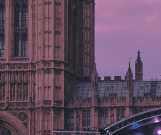
EXCLUSIVE: SEE PAGE 5
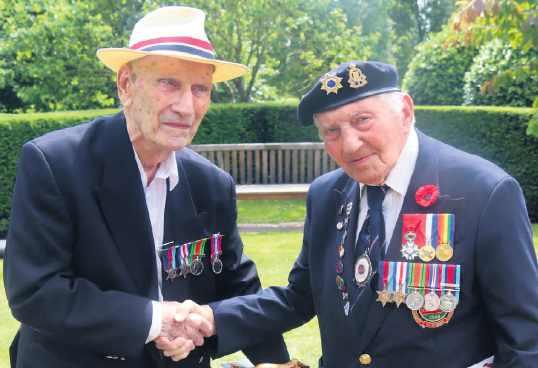
Starmer pens heartfelt tribute to liberators to mark 80th anniversary

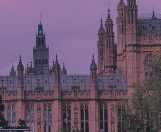



by Lee Harpin lee@jewishnews.co.uk
Keir Starmer this week told a parliamentary committee there has “got to be an investigation” into last month’s killing of 15 medics in Gaza by Israeli forces.
Appearing before the Commons liaison committee, he was asked if the UK would be pushing for the inquiry into the incident, which happened on 23 March after Israel renewed its war against Hamas.
He said: “There’s got to be an investigation into that, and we have to be absolutely clear that we’re not just talking about that isolated incident.”
The prime minister added: “There hasn’t been enough aid getting into Gaza at speed, at pace, for a very long time. The resumption of hostilities is the wrong move in my view. We need to get back to a ceasefire. We need to get aid in. We need to get the hostages out …..”
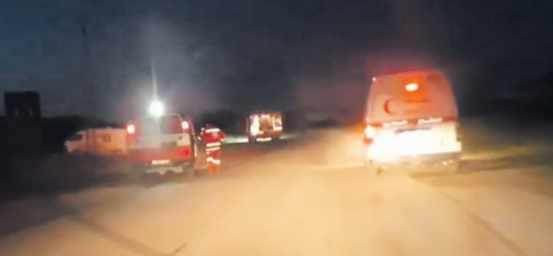
Starmer also said that while moves towards a two-state solution for Israel and Palestine seemed “remote today” the UK “needs to put our foot in the door for a process”. A two-state solution remains the only guarantee to peace in the long-term, added Starmer, who accepted: “I do appreciate that may seem a long way off.”
tions, as well as bilaterally. “We are critical of Russia as the aggressor in Ukraine because it’s in breach of the UN charter that is a rules based system,” said the prime minister.
Asked again by Champion about Israeli occupation, Starmer said he believed “the occupation is unlawful”. He stressed this has been long standing UK government policy.

Labour MP Sarah Champion pressed Starmer to explain how the UK would comply with the International Court of Justice’s legal opinion “on Israel’s illegal occupation of Palestine”, asking him to “outline how the UK will implement our legal obligations under the UN resolution”.
Noting his background as an international lawyer, Starmer said the UK held countries to account as a member of courts and institu-
David Lammy has been targeted by pro-Palestine protesters at his home in north London.
Two female activists from the group Youth Demand put fake babysize body bags outside the property, along with a sign on the hedge reading “Lammy Stop Arming Genocide”.
Attempting to justify the incident a spokesperson for the group said:
“David Lammy has admitted that Israel is in breach of international law and yet the UK has cancelled less than 10 per cent of arms sales to Israel. 90 per cent complicity with murder is still complicity with murder.
“History will rightly view those
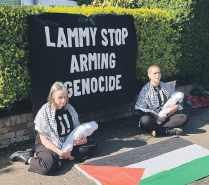
that supported the systematic slaughter of children with absolute contempt. David Lammy will be held to account for not having the
spine to cease trading with Israel and halting British armed forces from assisting this genocide.”
The foreign secretary was in Rome at the time of the incident, where he joined the King and Queen on a royal visit. It is not known if his family were at the North London property.
Three Youth Demand activists had previously been charged after they staged a similar action outside the prime minister’s home last year.
Lammy has attempted to lead the government’s position on Israel’s actions against Hamas in Gaza, but warning Israel is at risk of breaching international humanitarian law.
Iranian foreign minister Abbas Araghchi has confirmed that senior representatives of the regime in Tehran and the United States will engage in “indirect talks” in Oman this weekend.
US President Donald Trump had announced that the US is undertaking direct negotiations with Iran during a meeting with Israeli Prime Minister Benjamin Netanyahu on Monday.
“There’s a major meeting going on between us and Iran. That will
take place on Saturday, and it will be top level,” Trump said, in a surprise announcement that is said to have left Netanyahu “unsettled”.
“Iran cannot have a nuclear weapon,” he added. “If it can be done diplomatically in a full way, the way it was done in Libya, I think that would be a good thing.”
While Araghchi stressed that the talks would be indirect, Trump has repeatedly insisted that direct negotiations are under way – suggesting US
diplomats are speaking face-to-face with their Iranian counterparts.
It would be the first time since the 2015 nuclear agreement talks that officials from both countries sit in the same room. Trump unilaterally withdrew from the deal in 2018.
The US president has also praised Turkey’s President Erdogan for “taking over Syria”. He claimed he had a “great” relationship with Erdogan and was confident he could “work out” issues between Israel and Turkey.
The Palestine Red Crescent Society has called for an independent international inquiry into Israel’s killing of 15 emergency workers in southern Gaza. The organisation released the full video found on the phone of one of its eight paramedics who died when troops fired at a convoy of ambulances, which it said constituted a “fully fledged war crime”. Israel’s military said on Monday that a preliminary inquiry indicated troops “opened fire due to a perceived threat following a previous encounter in the area, and that six of the individuals killed in the incident were identified as Hamas terrorists”, without giving evidence.
The UN official Francesca Albanese, who previously claimed America was “subjugated by the Jewish lobby”, has been reconfirmed in her role as the United Nations special rapporteur on human rights in the Occupied Palestinian Territories.
The renewal of her mandate until 2028 was announced by the UN Human Rights Council in Geneva last Friday, prompting backlash from Israel, the US and advocacy groups.
Danny Danon, Israel’s ambassador to the UN, branded Albanese’s reappointment “a disgrace and a moral stain on the United Nations”.
Anne Bayefsky, director of the Touro Institute on Human Rights and president of advocacy group Human Rights Voices, urged the US to respond by withdrawing funding from the office of the UN High Commissioner for Human Rights.
Concerns had been raised by advocacy group UN Watch and parliamentarians, including Brian Mast, chair of the US House foreign affairs committee. Mast questioned Albanese’s suitability, but these objections were dismissed by the UNHRC.
Albanese has repeatedly accused Israel of “genocide” in Gaza and called for the country’s suspension from the UN. In 2014 she claimed the US was controlled by a “Jewish lobby”.
Albanese has also drawn parallels between Israel and Nazi Germany and controversially stated that the
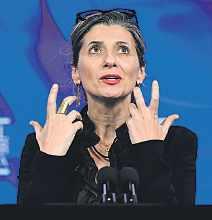
violence of the 7 October attacks needed to be “put in context”.
Several governments, including the US, Canada, France, Germany, and Israel, have expressed concern about Albanese’s rhetoric. The US Mission to the UN wrote to secretary-general António Guterres, criticising Albanese for “demonising Israel and supporting Hamas”, concluding that she was “unfit for her role”. Despite this, the UNHRC chose to reaffirm her position.
In an apparent dismissal of the criticism, Albanese shared a congratulatory post on X on her renewed mandate, stating, “Despite disingenuous efforts to have her fired.”
Earlier this year, the Board of Deputies urged the UN to remove Albanese after she supported disgraced academic David Miller in a subsequently deleted post on X.
One of Labour’s most pro-Israel MPs has described the decision to prevent two “moderates” in his party from entering the Jewish state as “outrageous”, writes Lee Harpin.
Luke Akehurst (North Durham) spoke out as members from across all political parties have lined up to criticise the decision to deny MPs Abtisam Mohamed and Yuan Yang access to the West Bank.
Akehurst referred to his role as director of grassroots campaign group We Believe In Israel for 13 years before becoming an MP, saying: “Part of my job was to lead study tours for British politicians to visit Israel.
“Every single trip I led also visited the West Bank to hear Palestinian perspectives on the conflict.”
He added: “I commend my two honourable friends for wanting to visit the region and see the situation for themselves. We probably disagree on aspects of the conflict, but they are moderate voices who support a two state solution.
“I think it is outrageous that they were detained and not allowed entry.”
Akehurst said anything that hinders politicians ability to reach an “informed view is to be deplored.”
Responding, Middle East minister Hamish Falconer said Akehurst’s “friendship” for Israel is well known “and his remarks have real force – I agree with them”.
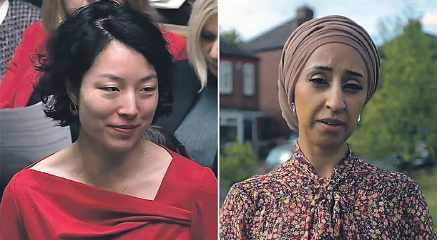
Shouts of “shame” were heard in the Commons as Falconer said: “It is my understanding that this is the first time a British MP has been barred from entering Israel.”
He added: “That decision appears to have been taken on the basis of comments made in this chamber. It is no way to treat democratically elected representatives of a close partner nation. We have made this clear at the highest levels in Israel.”
Falconer told an angry Commons that the two Labour MPs were given clearance to enter last Saturday “so it was known to the Israeli government before they arrived at the airport that they would be travelling”.
He said he was surprised to receive a call on Saturday informing him the MPs had been refused entry.
During Monday’s Urgent Question, Falconer said he hoped to hear Tory leader Kemi Badenoch respond to his statement, but she and the rest of her front bench stayed away from the Commons.
When the two MPs who had been denied entry spoke in the Commons, Labour MP for Sheffield Central, Mohamed said: “It’s been a challenging few days.”
She added: “No state, however powerful, should be beyond criticism. I desperately want to see a twostate solution and hope the minister will be able to work with his counterparts in Israel to prevent this happening again, so that we can continue to act in good faith to shed light on what is happening.”

Yang told the Commons she had been “inundated with support” from all parts of the House.
A Liberal Democrat MP has sparked anger after comparing the 59 hostages still held by Hamas with “the two million hostages in Gaza being held hostage by the murderous IDF.”
During a Commons debate on Gaza, Andrew George, MP for St Ives, took issue with the government’s stance on Israel’s war on the terror organisation, as he criticised Middle East minister Hamish Falconer.
George said: “Of course, we all want the hostages to be freed, just as we want the two million hostages in Gaza being held hostage by the murderous IDF, which is treating them with disdain and starving them, to be freed.

Falconer later called on Tory leader Badenoch to apologise for her comments over the weekend about the two Labour MPs. He said: “I had hoped that [Shadow Foreign Office minister Wendy Morton] might come to the dispatch box in order to withdraw the comments of the leader of the Opposition.”
For the Liberal Democrats, Vikki Slade said she was concerned Israel was resorting to tactics aimed at preventing ministers from condemning Israel more strongly.
A Jewish man accused of assault at a proIsrael rally has been cleared after the case against him collapsed at City of London Magistrates’ Court, writes Annabel Sinclair.
Barry Hyams, a familiar face at community demonstrations, was arrested following a heated exchange at a protest in June 2024. Alex Taylor, known for attending and filming proIsrael events, accused him of common assault after a confrontation in central London.
But last Friday, the Crown Prosecution Service offered no evidence after Taylor failed to attend court – prompting the judge to formally dismiss the case.
Hyams, who often wraps himself in the Israeli flag at rallies, had maintained he acted in self-defence. His solicitor, Carl Woolf, said Taylor had repeatedly pushed his phone into demonstrators’ faces and ignored multiple warnings from both protestors and police to back off.
Six defence witnesses from Hertfordshire were in court, ready to testify on Hyams’ behalf. Supporters – described as “the Bore-
hamwood Massive” – expressed frustration over the delay after the case was previously adjourned in December due to technical issues with a video link to Taylor’s home in Portsmouth.
Taylor had applied to give evidence remotely again but was ordered by District Judge Snow to attend in person.
On Friday morning, he contacted the court to say he couldn’t travel due to childcare responsibilities for his son – an explanation the defence disputed.
“He’s turned up to loads of demonstrations,” Woolf told the court. “He usually brings a drum.”
Speaking after the hearing, Hyams told Jewish News: “For almost a year my legal team and I have battled to protest my innocence and I am delighted my good name has been cleared. Am Yisroel Chai!”
Judge Snow refused a prosecution application to adjourn. With no witness present, the CPS dropped the case and Hyams was formally found not guilty.
“And since I came to this place, the war in Gaza and the violence from the West Bank has remained one of the top issues my constituents write to me about. Residents have shared with me their longing for peace, and it was on their behalf that I joined this delegation.”
Liberal Democrat former minister Alistair Carmichael, who chairs the Council for Arab-British Understanding (Caabu) which helped organise the delegation, said: “The attack on the honourable members is an attack on us all.”
Falconer repeatedly stressed Israel remains a “partner, an ally” but the UK is “surprised” at the actions taken at the weekend.
• Editorial comment, page 20
“If the minister is not prepared to make the statement that many of us wish for him to make, will he at least admit that the actions of the far-right Israeli Government can no longer be described as self-defence?”
One Jewish Labour source told Jewish News the MP’s remarks were “shamefully simplistic”.
Earlier in Wednesday’s debate, Falconer had told MPs “of course Israel has the right to legitimate self-defence consistent with international humanitarian law”.
He added: “Hamas are a threat not just to Israel but to their own people, and I have been absolutely clear on that question on numerous occasions at this Dispatch Box.”
A Liberal Democrat councillor compared Hamas to Jews who resisted the Nazis during the Holocaust, according to messages shared in a party WhatsApp group.
The Jewish Chronicle reports that John Boyd, a former mayor of Thatcham, made the remarks in a group chat of West Berkshire party members after another participant questioned the sharing of a Hamas press statement.
Responding to concerns about circulating content from a proscribed terrorist organisation, Boyd wrote: “Who is the terrorist group?
The occupational force committing genocide or the indigenous people fighting for their own land that’s systematically being taken from them one atrocity at a time?
“In World War II were the French resistance terrorists, or were they fighting for their own land? Were the Jews in the Warsaw ghetto the terrorists for fighting against an occupational force?”
Boyd added: “Just because the UK, through the Balfour agreement, is in part responsible for what is happening in Gaza doesn’t mean that we can’t accept mistakes have been made but endeavour to do the right thing… when we can see with our own eyes the Zionist game plan.”
Group members gave mixed responses. One called Hamas “an evil, racist, terrorist organisation” that had killed civilians “purely because of their ethnicity”. Another asked whether refusing to engage with Hamas was justified, citing its 2006 election victory in Gaza.
Later, Boyd claimed, “Hamas is the product of the Israeli occupation, and I dare say if any of us were put in the same position, we would want somebody fighting for our side… I say Zionist because, of course, there are many Jews who are opposed to what is going on in Israel. It is not antisemitic to criticise a Zionist regime… committing genocide.”
A LibDem spokesperson said: “These comments are highly offensive as well as inappropriate and do not reflect the party’s position. We have been unequivocal in condemning Hamas’ atrocious terrorist attacks on 7 October.”
Despite a formal complaint being submitted, a party source told the JC the case was dismissed due to “insufficient evidence”, and Boyd remains a member. The source said the full content of his comments had not previously been seen and that any complaint would be reviewed.
Susan Pollack remembers very clearly the brutality of the “long, long” death march she endured to Bergen-Belsen 80 years ago this month, writes Michelle Rosenberg.
The 94-year old Holocaust survivor spoke to Jewish News ahead of the landmark anniversary of the liberation of the concentration camp that claimed the lives of an estimated 52,000 Jewish and Polish prisoners.
“Some of us, of course, due to lack of food and lack of proper clothes were dying along the way, or were shot. We always had a Nazi with us. I don’t know exactly how long it took, but there were many casualties,” she recalls.
“The few of us who got there, where we were we did not know, the doors, the big gates, opened up and we managed to get in.”
The Germans invaded Hungary in March 1944. Susan’s father was one of many invited to a council meeting to discuss the welfare of Jews in the city. Rounded up into lorries and sent to concentration camps, he was one of many who never returned.
From May of that year, most of the country’s Jewish population, including Susan, her mother and brother, were deported in cattle trucks, mainly to Auschwitz-Birkenau. Her mother was sent immediately to the gas chambers; Susan was forced to work as a slave labourer for 10 weeks before being sent to an armaments factory in Guben, Germany. It was from there, as the Allies advanced, she was sent on the death march. She was just 15.
Left outside the gates of Belsen, she “looked for a place to be inside, perhaps to warm up a bit, not that there was any heating. And remarkably, I met somebody from home, from
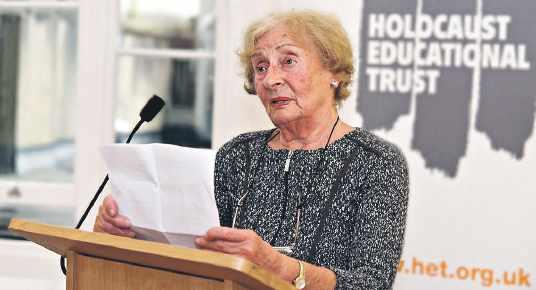
my village in Felsőgöd, where I was born. And she recognised me. It was an absolute, unpredictable, state of mind. And she asked me, ‘Zsuzsanna’, my Hungarian name, ‘are we going to survive?’ And speaking to her for the first time in many years, I said, ‘We’re almost there’. But I had to crawl back. I wasn’t able to walk.”
The following day: “I crawled back to her, and she had, I remember that quite clearly, she had lice all over her face, an indication that she wasn’t alive any more.”
When the Allied Forces arrived on 15 April, she remembers hearing “shouting all over that we were free”. She recalls “a gentle pair of hands, lifting me up and placing me in a small van. And that’s how I was liberated.”
Susan was hospitalised for tuberculosis,

BY DAN FOX NATIONAL CHAIR
Nothing could have prepared the men of Britain’s 11th Armoured Division as they entered Bergen-Belsen 80 years ago this month.
Within its confines, they came face-to-emaciatedface with the last belt of Hitler’s genocidal conveyor. This liberation was a defining moment in the UK’s military history.
AJEX will be remembering it, along with other Oak anniversaries of World War Two final year, in many ways over the coming
months.
Remembrance is a very Jewish practice. It is chesed shel emet , the true kindness of looking after the dead. Spiritually, its poetry and tunes, The Fallen, Last Post, Reveille, Kohima Epitaph form a secular Mourner’s Kaddish around which all, of any faith or none, unite to give thanks for sacrifice.
Remembrance also supports another fundamental Jewish principle: tikkun olam , that insistence that we leave some part of this life in a better condition to how we found it.
The military exists to achieve and maintain a
monopoly over violence, and to impose it in certain places, at certain times. But it should mean that there is also tikkun . On 15 April 1945, at Bergen-Belsen, British soldiers turned destruction into repair, nightmares into hope.
What they confronted meant they would never be the same again.
That indeed, the world would never be the same. Certainly, for Jews, everywhere, everything had changed.
The lessons of the Shoah continue to be taught.
We raise them still in the hope and necessity that they will continue to be learned.
typhoid and severe malnutrition and sent to Sweden to recover before moving to Canada where she met her future husband, Abraham, a fellow survivor.
With three children and six grandchildren, Susan has devoted her life to Holocaust education. She says it’s now for the world to learn about antisemitism. “Not us. We want to be accepted where we were born. We want to be accepted like everyone else. We hope that that violent, violent behaviour in the countries where we were born will disappear.
“It’s very di cult. I think we have to teach, and that’s why I devoted my life practically, to teach at schools, to go abroad and talk about my experiences of the Holocaust. So it’s for the others to learn, and not only that but to teach
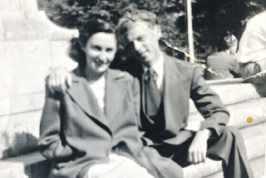
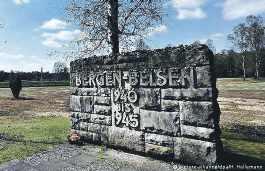
the churches and other religions. And to continue teaching.
“It’s catastrophic that in this day antisemitism should still take place, because is it through ignorance. Each and every one of us are responsible for each other. Enough of antisemitism; enough of any kind of hatred towards each other, because it has the potential to grow and become unstoppable.”
Fifty members of Susan Pollack’s family were murdered in the Holocaust. She and her brother Laci were the only two survivors.
The Holocaust Educational Trust is launching a powerful new podcast series exploring Holocaust history through personal objects — starting with a deeply moving episode featuring BBC journalist Nick Robinson.
In the first episode of Objects of the Holocaust, now available, Robinson reflects on a handwritten letter to his grandfather, Dr Bernard Rosenberg, a Jewish GP in 1930s Berlin.
It came from a long-time patient, who explained although he still wanted Robinson’s grandfather to be his doctor he could no longer be seen entering the practice because it displayed a Jewish name.
“I remember reading that letter for the first time and thinking, ‘Oh my God, that’s it,” Robinson says in the episode.
Presented by Professor Tim Cole and actress Louisa Clein, Objects of the Holocaust tells the story of the Shoah through a large number of individual artefacts.
These range from a repurposed sardine can to a wedding dress made from parachute silk. Each unlocks a personal account of persecution, survival or memory, told by public figures, descendants, or survivors themselves.
The Holocaust Educational Trust said: “This podcast is a powerful way to connect audiences with the history of the Holocaust in a deeply personal way. The stories we hear are fascinating stories of survival. Behind every object is a person, a family, a story.
“We are proud to launch Objects of the Holocaust and hope it will reach new audiences and encourage them to consider the lessons of the Holocaust and the nature of the antisemitism that led to the murder of six million Jewish men, women and children by the Nazis.”
Co-host Louisa Clein added: “As a daughter of a Holocaust survivor, I feel so passionate about telling these stories, listening to these voices and remembering everyone who is no longer able to speak for themselves.
“Our new podcast is a portal to the past and will enable the true, personal stories of the Holocaust to reach new audiences.
“It now falls to all of us, the next generation, to ensure that these objects and the important stories they represent are never forgotten.
“It has been a privilege to listen to everyone speak, and I am constantly in awe of the generosity of our guests sharing their family stories.”
Keir Starmer has sent a heartfelt letter to two Jewish Second World War veterans who helped to liberate Bergen-Belsen concentration camp, writing that he can “only begin to imagine how it must have felt as Jewish men to discover such depravity towards your fellow Jews”, writes Michelle Rosenberg.
In a personal tribute ahead of the 80th anniversary of the camp’s liberation on 15 April, the prime minister wrote to Mervyn Kersh and Stanley Fisher, both now 100 years old, thanking them for their “extraordinary service” and their courage in bearing witness to one of the darkest chapters in human history.
“As veterans of the Normandy Landings, you were part of a special generation of British servicemen whose breathtaking heroism and sacrifice dealt a decisive blow against fascism,” Starmer wrote from Downing Street. “But your story did not end with the liberation of Europe… You went on to become eyewitnesses to the horrors of Bergen-Belsen.”
Kersh and Fisher are among an estimated 60,000 Jews who served
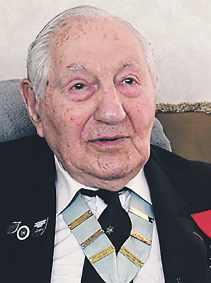
Mervyn Kersh, Belsen liberator
in the British Armed Forces during the war. Both landed in Normandy in 1944 and were later stationed near Bergen-Belsen when it was liberated by British forces in April 1945.
Kersh, who served in the ordnance corps, recalled in a 2015 interview how he gave chocolate to starving survivors – only to learn it could harm their frail bodies.
“These people were walking skeletons,” he said. “Chocolate was
far too rich for their weak digestive system.”
Fisher, who landed at Arromanches, gave evidence in a 2023 interview that witnessing the camp’s horrors had left him traumatised and silent for years.
“If someone fell by your side, you just carried on,” he said. “But the nightmares stayed.”
In his letter, Starmer praised the two men not just for their military service but for their enduring commitment to truth and remembrance.
“Your determination to speak the truth of what you saw is helping to ensure that the full facts of this darkest of crimes can never be diminished, denied or in any way forgotten,” he wrote.
Starmer also highlighted the importance of preserving their testimonies in the learning centre of the proposed UK Holocaust Memorial, due to be built in Victoria Tower Gardens, beside the Palace of Westminster.
“Together we must do everything possible to ensure that never again means what it says – and what it must truly mean – never again.”
In 1939, Henry fled Germany and found safety in England, where he met the love of his life, Bobby. Together, they loved going to the Brenner Stepney Jewish Community Centre. After Bobby died, Henry continued to find comfort, connection, and a warm and caring Jewish community who understand his past.
“MY BAR MITZVAH IN 1937 IN NAZI GERMANY WAS NOT A HAPPY ONE. BUT MY SECOND BAR MITZVAH HERE AT THE CENTRE, 85 YEARS LATER, WAS ONE OF THE BEST DAYS OF MY LIFE.”
To help more people like Henry scan here, visit jewishcare.org/pesach or call us on 020 8922 2600
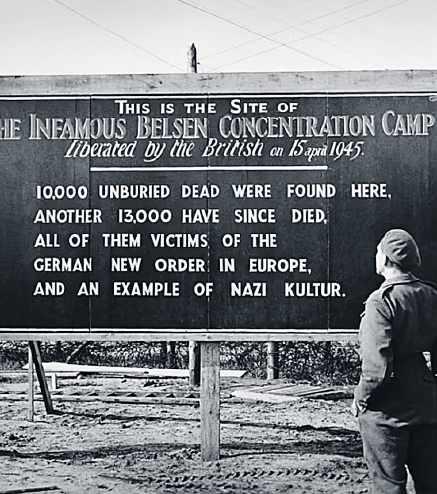



































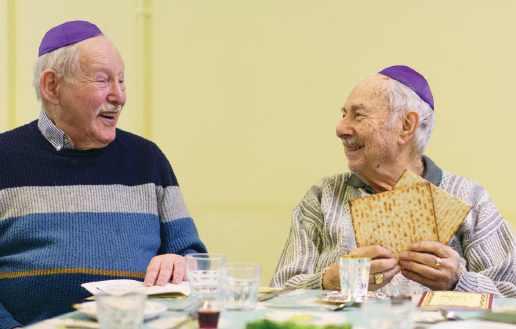
by Michelle Rosenberg michelle@jewishnews.co.uk
There comes a point when you stop whispering and start shouting. When playing the violin on the deck of the Titanic, as water floods the lower floors, isn’t dignified – it’s deranged. For David Collier, that point, for British Jews, is now.
In February, the investigative journalist from London blew the lid off one of the
BBC’s most controversial programmes in recent memory – the documentary Gaza: How To Survive a Warzone . At first glance, it was a hour-long look at children growing up in conflict. But Collier knew the ground too well to be taken in by its sentimentality.
His revelations – that one of the central characters, 14-year-old Abdullah, was the son of Dr Ayman Al-Yazouri, a Hamas government official with ties to the terror group’s founding leadership – detonated across media and politics.
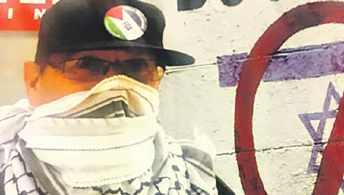
It wasn’t just poor judgment. It was editorial malpractice.
Worse, Collier found that a cameraman involved in filming, Amjad Al Fayoumi, had publicly celebrated the 7 October attacks and shared grotesque “resistance” clips online, including footage of dead Israelis and Hamas fighters launching rockets.
The BBC’s initial apology was vague, a hurried afterthought. But insiders – some deeply
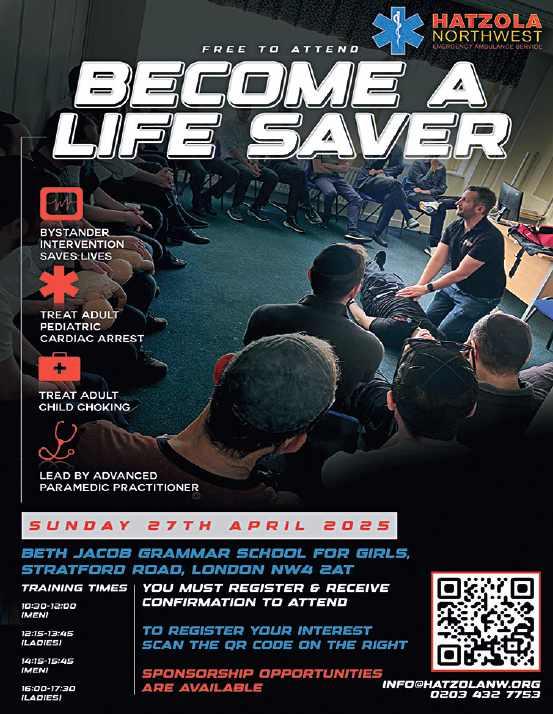
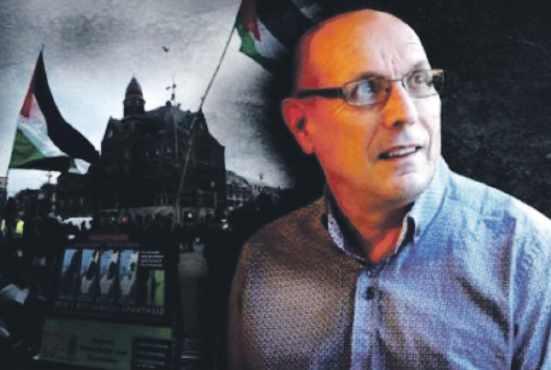
uncomfortable – described the internal reaction as a “slapdash cover-up”. That only fuelled the outrage.
Within days culture secretary Lisa Nandy raised the matter in parliament. Former BBC One controller Danny Cohen called for an investigation. The backlash spread to ITV, Sky, and beyond. Eventually, the broadcaster had no choice: Gaza: How To Survive a Warzone was removed from iPlayer.
And at the centre of the storm was David Collier. Utterly unfazed.
“I’ve done far harder investigations than this,” he tells Jewish News. “It was the scale of the failure that left the BBC no room to manoeuvre. They were cornered.”
If that sounds stark, it’s meant to. Collier doesn’t believe the BBC will change, despite his exposé.
“Of course not,” he scoffs. “The BBC is just a sum of its parts. Amnesty International is just a sum of its parts. It has nothing beyond the DNA of the people that work there.”
The BBC documentary wasn’t the 59-yearold’s first firestorm. In 2018, he went undercover as a fake anti-Israel activist, infiltrating hard-left online circles under the name “John”.
His revelation of Jeremy Corbyn’s membership in a secret pro-Palestinian Facebook group – one riddled with 9/11 and Rothschild conspiracies – forced Labour into damagecontrol mode and put Collier on the map.
Before that, he was anonymous. A former tourism professional who’d lived in Israel, his family returned to the UK and he pivoted to online investigative work. Initially, he simply wanted to promote Israel. But it quickly became something more.
“I went in undercover,” he says. “It almost started as a hobby, but I realised how serious it actually was.”
By then, “John” was a fixture in private anti-Zionist spaces. “I was sitting in the corner, recording everything. I wasn’t scared – nobody knew who I was. Over time, I became a recognised face in those circles, just not as David.”
He dismisses the idea that his work makes him a spy. “There is value in what I do. I feel almost blessed in some ways, because my
life has purpose. I’m doing something fundamentally good, so there is an inner peace that comes with this.”
But the stakes are rising. Collier receives daily death threats. He’s been assaulted in the street – twice. He refuses to report the threats, not wanting to “waste police time”. If someone means to hurt him, he says, “they won’t send a warning”.
What worries him more is the political climate in Britain. “We’re fighting a very, very complex battle,” he says of UK Jewry. “It’s multifaceted. Not every ally is an ally. Not every enemy is an enemy. Our community is fractured. But we need to unite. Fast. We’re in trouble.”
He sees social media as a self radicalisation tool. “I spend so much time in the sewers. I still have active anti Zionist accounts.”
He paints a grim picture, one roundly rejected by many in the mainstream of the Jewish community, of a nation spiralling toward extremism. Of Islamist radicalisation surging online and an emboldened far right preparing to return fire. With the Jewish community stuck in the middle.
“These two elements are feeding off one another,” he warns. “A spiral. And in that chaos, moderate voices get pulled into dangerous territory.”
And what of British Jews? “There will be your Stamford Hill, ultra-Orthodox communities. They won’t go anywhere. The ultraOrthodox communities are growing while our communities are shrinking.”
His analysis of western society is bleaker still.
“We’re on the Titanic,” he says. “And the question becomes — what is my role? Some people may be good engineers. Some may be just standing there with buckets trying to throw the water out faster than it can come in. I reference organisations like the Board of Deputies here, playing the violin on deck, just to make sure everybody else is calm.”
His role? “I’m screaming at people to get in the lifeboats.”
Collier is under no illusions. “We might lose,” he says. “But I’ll be damned if I go down playing music. I’ll fight to the utmost of my ability, using every weapon I have.”




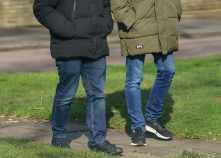
Jewish Blind & Disabled are excited to announce
Finchley
The second Thursday of each month 11.30am – 1.00pm
Borehamwood
The second Tuesday of each month 11.30am – 1.00pm
Sessions are designed for meeting new people and sharing experiences of living with sight loss in a safe environment. Family members, friends or carers are welcome to join.
To join a session or find out more information, please contact Toni Lewis on toni@jbd.org or 020 8371 6611 ext 620



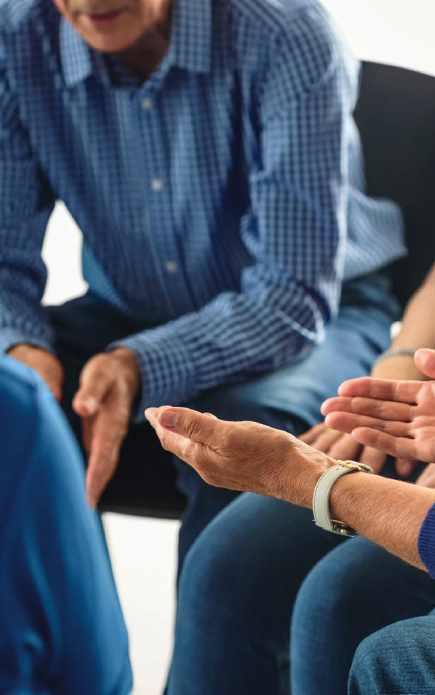
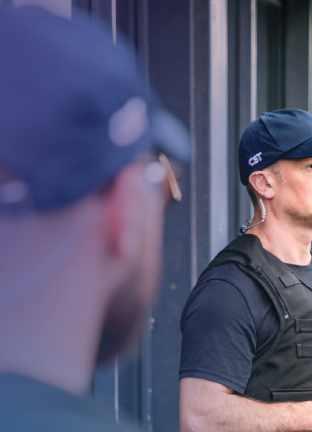


Norman Rosenbaum, a retired surgeon whose donated ambulances for Israel’s emergency service helped to save tens of thousands of lives, has died aged 90, writes Annabel Sinclair.
A long-standing member of Cockfosters and North Southgate Synagogue, Rosenbaum crowdfunded 16 ambulances for Magen David Adom (MDA) UK, raising hundreds of thousands of pounds and mobilising a dedicated donor base in north London.
Figures in 2019 revealed that 12 of those vehicles alone had responded to 75,000 emergency incidents. One ambulance, funded by Jewish News and Cockfosters Synagogue in 2010, attended over 10,000 calls.
MDA UK now estimates that the vehicles donated thanks to Rosenbaum’s e orts have helped save about 132,000 lives.
In 2021, Rosenbaum was appointed hon-

orary manager of Magen David Adom in Israel and vice-president of its UK branch. That same year, he and his wife Eve dedicated their most recent vehicle at Sopwell House in Hertfordshire, named in honour of Prince William.
MDA UK chief executive Daniel Burger said Rosenbaum was “an exceptional individual who taught me personally so much about chesed and tzedakah”.
He added: “It was an honour to see him win the Jewish News award all those years back and then hand it over to the next generation. Norman is the absolute essence of a mensch and he will be sorely missed by everyone that knew him.”
At Jewish News’ Night of Heroes Awards, Rosenbaum was named a finalist but gave his accolade to fellow nominee Kerry Rosenfeld, who had raised £7m for Duchenne muscular
dystrophy research. He was also honoured with MDA Israel’s Humanitarian of the Year award and received the UK prime minister’s Points of Light award in 2018.
Rabbi Yisroel Fine, who served Cockfosters and North Southgate Synagogue for 27 years, described Rosenbaum as “a great admirer and a close friend”.
“His outstanding quality was one of compassion. Whether raising money for ambulances, supporting the vulnerable, or carrying out sacred burial work, Norman acted with relentless devotion.
“In my 50-year career there are very few individuals I’ve encountered who so fully embodied the ideals of Jewish communal responsibility and compassion for others.”
Cockfosters synagogue also paid tribute, describing Rosenbaum as “a man of quiet determination and extraordinary impact”.
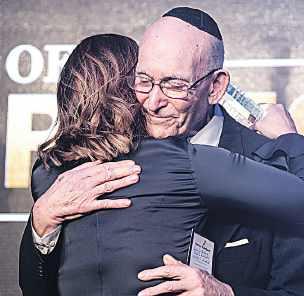
A Ukrainian refugee who fled Russian bombardment has opened a boxing academy in She eld to support local children, with help from World Jewish Relief, writes Joy Falk.
Oleksandr Pohodin arrived in the UK in
June 2022 with his wife Zhanna and their children – Nika, 15, Polina, eight, and Matvii, six – through the Homes for Ukraine scheme. They fled their hometown of Chernivtsi after enduring nearnightly bombings.
In May 2024, Pohodin, 35, opened the Pohodin Boxing Academy at Syd’s Gym, alongside coaches Syd Khaan and Benny Banaris. A former amateur boxer with nearly 150 fights, he previously ran a sports club in Ukraine.
The academy runs five days a week, o ering sessions to children and adults. “It helps kids develop confidence,” Pohodin said. “I feel successful when I see a child happy to be here.”
WJR, which has sup-
ported over 13,000 Ukrainians, helped Pohodin with employment support and English lessons. Pohodin also praised She eld boxing mentor Brendan Warburton for his guidance: “100 perent, I think he’s my mentor.”
Every Premier League football club has now participated in workshops examining the rise of contemporary antisemitism and its impact on the UK Jewish community, Jewish News can reveal, writes Lee Harpin.
The significant milestone, as part of a partnership undertaken by Lord John Mann and Maccabi GB, was achieved last week after Southampton Football Club became the last of the 20 top-level English football sides to agree to host workshops for the Tackling Antisemitism in Sport project.
The south-coast side’s participation in the scheme means all current Premier League sides has received vital training in recognising and dealing with anti-Jewish racism since the projects launch in September 2023.
The workshops provide an essential introduction to the British Jewish community, discuss the issue of antisemitism through a historical and contemporary lens, stressing the importance of the IHRA working definition of antisemitism.
They also assess real-life scenarios that have occurred around a football setting, encouraging participants to address and report any incidents that are witnessed or experienced.
Since becoming the government’s independent adviser on antisemitism Lord Mann has been a staunch supporter of antisemitism campaigns and education in football –both in Britain and internationally.
The partnership with Maccabi GB on the latest project has proved to be particularly successful.
Lord Mann told Jewish News: “Having representatives from every Premier League club receive training on contemporary antisemitism is groundbreaking in the world of sport.
“Giving club staff, players and stewards the knowledge and tools to combat antisemitism not only means they are better equipped to deal with issues should they arise, but it also creates a safe, inclusive and welcoming environment for their Jewish fans.
“This milestone is the first of its kind and should be celebrated as a model of best practice. These clubs should be commended for their positive commitment to combating antisemitism.”
Ashley Lerner, chief executive Officer of Maccabi GB, added: “This programme is fundamental to Maccabi GB’s vision of fostering a healthy, active, and proud Jewish community integrated within British society.
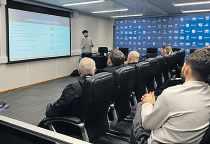
“Sport has a universal power, and it is crucial that the professional game understands the Jewish community – our challenges as a minority group and the role it plays in ensuring that everyone, including Jewish fans and players, can engage without fear of discrimination or abuse.
“Education and awareness are key to achieving this, and I thank the football clubs and bodies for welcoming Maccabi GB into their spaces to deliver this vital training.”
Since September 2023, the Tackling Antisemitism in Sport project has been led by project manager, Ben Sweiry. He has delivered over 100 workshops to around 3,000 participants in its first 18 months of existence, including football club and County FA staff, academy players and stewards, and is growing at an exponential rate.
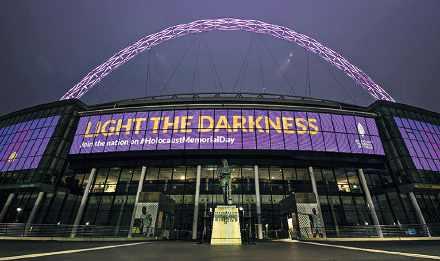
A further 59 clubs from the English Football League have also engaged, as well as 42 out of 50 county football associations and the national FA.
Meanwhile, steward-specific training on antisemitism was given to 70 of Liverpool Football Club’s head stewards in advance of their Premier League fixture against Newcastle in February.
“We are absolutely delighted to have hit the milestone of having ensured every Premier League club has received some training on Antisemitism,” said Sweiry.
“In this troubling period where
antisemitism is rife in the UK and around the world, the approach of football clubs has been overwhelmingly positive; they have welcomed us in with open arms and they are keen to learn about the issues facing Jews in football and in wider society, and how to best include their Jewish fans in their operations.”
Under Lord Mann’s guidance, Premier League clubs and footballing bodies such as the Premier League, EFL and The FA adopted the IHRA definition of Antisemitism, ‘Jewish Supporters Groups’ within nine clubs across the professional leagues have been launched.
‘I HADN’T EXPERIENCED ANTISEMITISM BEFORE 7/10’
Former Wycombe Wanderers footballer Joe Jacobson said this week that he had never experienced antisemitism in his football career until 7 October, writes Candice Krieger.
Speaking as part of a sporting panel at the ORT UK business breakfast on Thursday, Joe, who played for the club until last year, said: “It was only after what happened on 7 October that I started getting a little bit of stick on social media.
“People reacted to a post that I made. There was no controversy about the post –I’d made sure that I had gone through all the comms and media people.
“It got to a point where people were threatening to turn up at the club and barricade the stadium gates on match day.”
He recalled how the club provided extra security for him. “I didn’t really realise what was going on but the club had arranged for a player to come with me, someone to meet me at my car and escort me in. Usually, you can have pictures with fans but I wasn’t able to do that either and it wasn’t until later that I realised why.”
Also on the panel, which was moderated by sports lawyer and podcaster Daniel Geey, were presenter and broadcaster Talia Lazarus and top sports agent Leon Angel, head of CAA Base. Leon noted that antisemitism in football had “got a lot worse” since 7 October. “I’ve got a lot of Israeli players who can only go to certain teams. One of my

players was in Berlin and looking to move and we had to consider which club he would go to. One of the Italian clubs, because of their ownership, would not take an Israeli player and there was a British club that wouldn’t take a player from Israel because their captain was very pro-Palestinian.”
On a lighter note, Leon, one of the first agents in the UK to be licensed by the FA, also relayed a transfer story that included Arsène Wenger, Diego Maradona and the Pope.
Wenger and his long-term adviser Leon, were in a queue of about 300 people as part of a private audience invited to meet Pope Francis inside the Vatican when they were trying to secure a deal to sign Danny Welbeck from Manchester United. Maradona
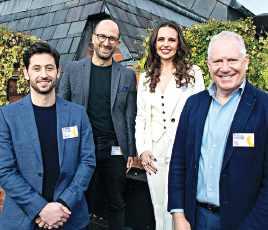
was also in the queue.
Just as the pair reached the front, Wenger’s mobile battery died. Rushing straight to the stadium afterwards, Leon eventually had to tiptoe into the dressing room and get Wenger to approve the deal before the teams headed out for kick-off and the window closed.
The 100-plus guests also heard the panel talk about employability skills and mentorship. ORT UK is an education charity that runs the ORT JUMP mentoring and employability skills programmes for secondary school students.
Leon spoke about what makes a successful football coach: “good communication skills, hard work, leadership skills and being a good motivator”, while Talia Lazarus, who was seri-
ously injured in 2021 when her e-scooter collided with a bus and had to learn to walk again, spoke about overcoming adversity.
“When you’re in the darkest of places, you have two choices.” While Talia was in rehab, she ran the half marathon, which she completed in 2023. “My body kept telling me to give up but my mind said keep going.”
Daniel Geey, a partner in the sports group at Sheridans, said: “It was a privilege to host such an accomplished and inspiring panel from the sporting world. The stories they shared with us demonstrated what can be achieved with hard work, determination and self-belief.
“These key attributes are central to ORT UK’s ORT JUMP programmes, which help young people develop the skills and confidence to take the next steps on their career path. The event was full of positivity for the future, reflecting ORT UK’s vital work supporting the next generation.”
ORT UK chair Annette Kurer said: “The [SP]ORT UK Business Breakfast was a fantastic opportunity to promote how the ORT JUMP programmes empower the next generation of students to achieve their potential through mentoring, employability skills training and alternative work experience opportunities. Our panel of stars from the community shared their career experiences and how much they attribute their success to mentoring and strong workplace skills.”




































As you and your family embark upon your great Aliyah adventure, we, as Olim ourselves, are pleased to offer our insurance services.



Whether it be home, car, business, health or life insurance, we’re here when you need us!

• Tax-efficient investing before and after Aliyah
• Tax-efficient income after 10-year tax-free period
• Receive your entire pension pot tax-free
• Specialist portfolio management for Olim
• No Inheritance Tax (for non-UK-situated assets)
We are seasoned experts in providing long-term financial planning advice for those making Aliyah. Scan the QR code to read more
With investing, your capital is at risk. Tax treatments are subject to individual circumstances and are subject to change.




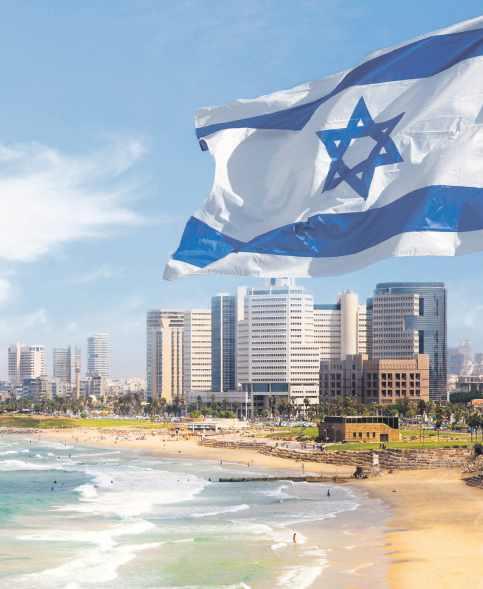
Every Friday evening, Deena helps prepare a Shabbat meal. Surrounded by friends in her supported living home, she lays the table, lights the candles and welcomes the peace of the weekend. It’s a simple tradition, but for Deena and her family, it represents something profound, writes Annabel Sinclair.
As Labour signals stricter rules on welfare spending, the future of that independence is being called into question. Jewish charities supporting those with complex disabilities say proposed reforms could jeopardise the lifelines that make moments like Deena’s possible – and put the vulnerable at greater risk of isolation, poverty and institutionalisation.
“Deena has been supported by Kisharon Langdon since she was a toddler,” says her mother, Sylvia. “From nursery to school to college and now in Supported Living, the charity has been integral to Deena’s life. We chose it for its unique offering in the Jewish learning disability and autism community; we can’t imagine our journey without their support.”
At her spring budget, chancellor Rachel Reeves reaffirmed Labour’s commitment to reducing welfare spending and increasing workforce participation. “The Labour Party is the party of work,” she said. “We believe that if you can work, you should work. But if you can’t work, you should be properly supported.”
While no specific changes to disability benefits have been announced, Reeves’ focus on fiscal responsibility and her pledge to make “tough decisions” have unsettled many within the disability sector. Charities warn
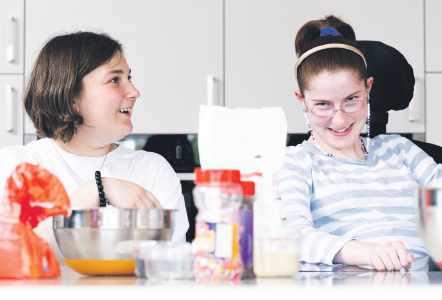
the rhetoric risks oversimplifying the reality for people with profound or complex needs who are simply not able to work and whose lives rely on consistent, specialist support.
Kisharon Langdon, which supports Jewish people with learning disabilities and autism across education, employment, and independent living, is one sounding the alarm.
“We are deeply disappointed by the government’s latest budget,” says chief executive Richard Franklin.
“The plans, which include cuts to disability benefits, do nothing more than place further strain on those using the services of charities like Kisharon Langdon and their families already struggling to navigate the chronicallyunderfunded social care sector.”
Franklin also criticised the decision not to exempt charities from NI contributions, saying the combination of rising taxes and higher wage bills poses a “severe challenge”.
“For Kisharon Langdon, the rise in employer national insurance contributions and in the national minimum wage will cost us an extra £400,000 a year on top of the £4.5 million it costs us to run our vital services,” he said.
The warning comes as UK households face a wave of cost-of-living pressures with energy, water and council tax bills rising. The Resolution Foundation has warned poorest families will be hit the hardest.
For people reliant on benefits or facing high care costs, the rises add yet another layer of financial strain.
Meanwhile, Department for Work and Pensions analysis suggests recent changes to welfare policy will push 250,000 more people – including 50,000 children – into relative poverty by 2029-30.
Zoe, a tenant in Kisharon Langdon’s Supported Living service, has taken part in its employment programme and now works two days a
week at its head office in Colindale.
“I work on reception and welcome people, and I offer them a drink and ask them to sign in,” she says. “I really enjoy coming to work at Kisharon Langdon and meeting people.”
Charity leaders emphasise supported employment is a positive step for some but not a viable goal for all.
Many of those they support require round-the-clock care and simply cannot work. Policies that frame employment as the expected outcome, they say, risk further marginalising people with complex needs.
“One of the highlights for our family is the Friday-night dinners coordinated by the Jewish Life team,” says Sylvia. “Seeing Deena and her friends come together to prepare and host their own Shabbat meal is truly heartwarming; it gives them a deep sense of pride and belonging.”
She fears political decisions made without a real understanding of disability could threaten the support systems that enable Deena to live a full, connected life.
Another charity raising concerns is Jewish Blind & Disabled (JBD), which provides accessible housing
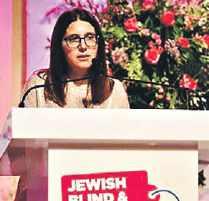
and support for people living with physical disabilities or sight loss.
“The government’s announcement on disability benefit reforms has created anxiety and concern for many of the people we support,” says chief executive Lisa Wimborne. “The potential loss or reduction of PIP will impact people’s ability to retain their independence.”
PIP, she explains, covers critical costs that arise from living with a disability – from mobility aids and assistive technology to transport and home adaptations.
“Taking away access to essential funding could result in failed employment or people ending up unnecessarily in hospital or residential care – at huge cost to the individual and to the public purse.”
JBD tenants say they are already worried about what the future holds. Neil, who lives with multiple sclerosis, said: “I receive enhanced PIP, and a big part of this pays for my mobility car which gives me the independence to get out and about. I also use it for laundry and specialist products to manage my condition. A reduction of PIP could leave people with no quality of life, struggling to cope.”
Chris, another JBD tenant, said PIP is his “lifeline”, allowing him to maintain his personal identity and have his personal care take place at home with his specialised care providers to come to him. “It enables me to live my best life,” he said
Labour has said that welfare reforms will be implemented in a “compassionate way”. But for families like Sylvia’s, the question remains: will that compassion survive contact with the numbers?
The United Synagogue has reported a sharp rise in safeguarding concerns, increasing from an average of four a year to around 10 a month.
In response, the organisation has expanded its safeguarding team, strengthened policies and introduced new digital monitoring systems to address the growing demand.
Head of safeguarding and welfare Claudia Kitsberg described the rise as significant but attributed it to increased awareness rather than a
surge in abuse. “We’ve moved from reactive safeguarding, responding primarily to incidents, to embedding safeguarding as everyone’s responsibility,” she said.
“The results indicate a community where individuals feel safer coming forward.”
The increase in cases spans a range of concerns including domestic abuse, financial exploitation, coercive control, and mental health crises.
While some cases involve mem-
bers of the Jewish community, others concern individuals outside it, with the United Synagogue pointing out it plays a key role in signposting people to external agencies such as Jewish Women’s Aid and local authorities.
The United Synagogue operated previously with only a part-time safeguarding professional, but it has now expanded to a full-time team of three specialists.
The organisation says it has also brought in an independent safe-
guarding consultant to review policies and ensure transparency.
All employees and volunteers now receive accredited safeguarding training, and new digital tools, including a volunteer management system and specialised reporting software, have been introduced to improve case management.
The organisation is also working with the Jewish Leadership Council to run a cross-communal Safeguarding Forum.
This is aimed at strengthening
safeguarding measures across Jewish institutions.
Kitsberg said the rise in reports reinforces the need for a proactive safeguarding culture. “The message is clear: safeguarding is everyone’s responsibility. Nothing surpasses the importance of ensuring our synagogues and programmes remain safe spaces for all.”
Claudia is running the London Marathon to raise funds for extra initiatives. Donations can be made at www.theus.org.uk/claudia
Netanyahu’s conduct poses a clear and immediate danger to Israel’s security and future as a Jewishdemocratic state!
Heads of the security establishment in recent decades - Chiefs of Staff, Commissioners of Police, Heads of Mossad, Heads of Shin Bet and Heads of Military Intelligence declare:

Shlomo Aharonishki, Police Commissioner (ret.)
Admiral Ami Ayalon, Head of the Shin Bet (ret.)
Nadav Argaman, Head of the Shin Bet (ret.)
Major General Ehud Barak, Head of Military Intelligence (ret.), IDF Chief of Staff, Minister of Defense, Prime Minister
Carmi Gillon, Head of the Shin Bet (ret.)
Ephraim Halevi, Head of the Mossad (ret.)
Lieutenant General Dan Halutz, IDF Chief of Staff (ret.)
Assaf Hefetz, Police Commissioner (ret.)
General Amos Yadlin, Head of Military Intelligence (ret.)
Lieutenant General Moshe (Bogie) Ya’alon, Head of Military Intelligence, IDF Chief of Staff, Minister of Defense (ret.)
Major General Danny Yatom, Head of the Mossad (ret.)
Inspector General David Cohen, Police Commissioner (ret.)
Major General Amos Malka, Head of Military Intelligence (ret.)
Inspector General Rafi Peled, Police Commissioner (ret.)
Major General Yaakov Peri, Head of the Shin Bet (ret.)
General Tamir Pardo, Head of the Mossad (ret.)
Major General Aharon Zeevi-Farkash, Head of Military Intelligence (ret.)
General Uri Sagi, Head of Military Intelligence (ret.)
Prime Minister Netanyahu has overseen policies that have led to the strengthening of Hamas as well as preventing harm to its leaders. Because of this he carries responsibility for Hamas’s actions on October 7th, and to this day, he has been avoiding the possibility of any alternative rule to Hamas.
Renewing the fighting in Gaza for irrelevant considerations and without an achievable political goal will not lead to the release of the hostages. It will not bring about the defeat of Hamas and will eliminate the achievements of the army and the security systems in the war. Ending the fighting would allow for normalization with Saudi Arabia and better preparation for the Iranian challenge.
Netanyahu is involved in a conflict of interest and is propelling Israel to catastropheharming the security of the state, damaging its democratic regime and its institutions, and leading Israel to a dictatorship.
Promotion of the Draft Evasion Law shatters the model of the people’s army and harms the army’s ability to achieve its goals.
Netanyahu’s immediate unwavering support of his office members investigated in connection to illegal contacts with Qatar, alongside his attempts to fire the civil servants heading the investigation – the head of the Shin Bet and the Attorney General – raises disturbing suspicions about his part in the case.
The announcement of the selection of a new Shin Bet chief and its immediate cancellation illustrate that considerations of personal loyalty and not state loyalty guide Netanyahu’s conduct.
Therefore, we, the heads of the security services in recent decades, call:
To recognize that Netanyahu’s conduct casts serious doubt on
his fitness to fulfill the role of Prime Minister.
And we also call for:
Intensification of the civil struggle for the immediate return of the hostages within the framework of a ceasefire agreement; Establishment of a State Commission of Inquiry; A halt to the controversial legislative moves; Upholding the High Court of Justice’s decision with regard to conscription;
Setting an agreed upon date for elections in which the people will have their say.
This letter was written in blood and tears. It was drafted
by Israeli families whose loved ones were taken hostage and lost their lives in captivity in horrific circumstances, and is supported by families of hostages who signed below.
We urgently call out to all who would listen: Stop the fighting, return to the negotiating table, and fully implement an agreement that will bring back all hostages, even at the cost of ending the war. Military pressure endangers them, and nothing is more urgent than returning all hostages.
We all support this: those who returned from captivity and experienced the horrors firsthand, families of hostages still in Gaza who are terrified, those who welcomed their loved ones with embraces, and those forced to bury their loved ones, knowing they could have been saved.
The vast majority of Israeli citizens stand firmly with us, overwhelmingly supporting a deal to bring our loved ones home and end this devastating war. Together, we all say “enough”! Military pressure kills living hostages and makes it impossible to recover those who have perished.
This is not a slogan; it’s a reality. 41 hostages who were kidnapped alive have paid with their lives, and we, their families, have paid the ultimate price. They could have returned to embraces and rehabilitation, but that chance was taken from them.
The Israeli government appears to be prioritizing continued military operations over the immediate return of the hostages, putting their lives at greater risk. While we hold our government accountable for these choices, we must not forget that Hamas bears the original and continuing responsibility for this tragedy—they murdered innocent civilians, abducted our loved ones, and continue to abuse them in captivity.
We call on the international community and all mediators to exert maximum pressure on both sides. A deal that includes the return of all hostages and an end to the war must be signed without further delay. Every moment lost could mean another life extinguished.
We, families who have involuntarily paid the heaviest price of all, raise a red flag and warn: Returning to fighting will cost more hostages their lives. The circle of bereavement will expand—and in vain.
We must stop the fighting and immediately return to the negotiating table to reach a comprehensive agreement for their return: all hostages in exchange for ending the war and finding a solution for the day after.
Signatories: Hamas captivity survivors: Gadi Moses, Keith Siegel, Ofer Kalderon, Eli-ah Cohen, Liri Albag, Sagui Dekel Chen, Agam Berger, Karina Ariev, Ohad Ben Ami, Arbel Yehoud, Ada Sagi, Shani Goren, Nili Margalit, Gabriela Leimberg, Yaffa Adar, Ditza Haiman, Ofir Engel, Amit Soussana, Karen Munder, Ruti Munder, Liam Or, Adina Moshe, Channah Peri, Raya Rotem, Liat Atzili, Noga Weiss, Shiri Weiss, Margalit Moses, Rimon Kirsht-Buchshtab, Sharon Aloni Cunio, Danielle Aloni, Ilana Gritzewsky, Yocheved Lifshitz, Karina Engelbert, Mika Engel, Yuval Engel, Noralin Babadila, Meirav Tal, Jimmy Pacheco, Amit Shani, Agam Goldstein, Sahar Kalderon, Erez Kalderon, Shoshan Haran, Fernando Marman, Ofelia Roitman, Clara Marman, and Raz Ben Ami.
Families of Hostages (still in captivity): Yael, Dalit, Hoshua, and Tzvia Haggai, Dana Milo, family of Gad Haggai Moshe, Yael, Erez, Alon, Adva Adar and Assaf Mizrahi, family of Tamir Adar
Nadav, Bar, Yaffa Rudaeff, Idit Fox Rudaeff, Noam Katz Rudaeff and Yael Sabrigo, family of Lior Rudaeff
Ranana Goma Yaakov, family of Yair Yaakov
Ella and Zanir Haimi, family of Tal Haimi
Boaz Atzili, Noa Atzili, Nir Atzili, Irit Ogara, family of Aviv Atzili
Mayan, Mital, Osnat Weiss Shoshan, Liat Weiss, Vered, Ali, Enfa and Adva Fich, Yehudit Lior, Yossi Lior, Adi Lior Zomer, Golan and Shahar Weiss, family of Ilan Weiss
Revital Cooper Nachmuchov, Rotam Cooper and Srulik, family of Amiram Cooper
Noa and Nili Margalit, family of Eliyahu Margalit
Ora Gazit and Boaz Zalmanovich, family of Arye Zalmanovich
Dorit, Yuval, and Yael Or, family of Dror Or Einav and Natalie Zangauker, family of Matan Zangauker
Ruby Chen, family of Itay Chen
Lishay Miran Lavi and Michal Lavi, family of Omri Miran
Bar and Gal Godard, family of Meny Godard
Nirit Lavi Alon, family of Inbar Hayman
Michel Illouz and Meirv Hammek, family of Guy Illouz
Dalit Oron, family of Idan Shtivi
Sylvia, Luis, Eitan and Stav, Lucas and Paula, Tato and Roxana Simelson, family of David and Ariel Cunio
Jill, Dvir and Tal Kupersthein, family of Bar Kupershtein
Vicki, Yehuda and Yotam Cohen, family of Nimrod Cohen
Herut Nimrodi, family of Tamir Nimrodi
Tom Engel, family of Ronen Engel
Tala Herkin, family of Maxim Herkin
Orna and Ronen Neutra, family of Omer
Neutra
Ayelet Goldin, family of Hadar Goldin
Meirav and Hadar Daniel, family of Oz Daniel
Nira Sharabi and Osnat Sharabi Malaton, family of Yossi Sharabi
Anat, Haggi, Ofir, Adi, Rina and Mordechai
Angrest, family of Matan Angrest
Itzhak Horn, family of Eitan Horn
Kobi Galit, Raz and Talia Kalfon, family of Segev Kalfon
Doron and Gefen Zexer, family of Edan
Alexander
Families of Hostages Returned for Burial:
Adi and Avi Marciano, family of the late Noa Marciano
Gal and Bar Goren, Smadar Alfassa Goren and Dror Alfassa, Shlomo Alfassa Goren, family of the late Maya Goren
Carmit Palty Katzir & Raz Palty, Avital & Amir
Shay, Hayuta Halevy, Dalit, Yair and Anat Katznelbogen, Michal and Ofer Maman, and Pini Halevy, family of the late Elad Katzir
Katia Beizer, family of the late Nick Beizer
Dikla Shamriz, family of the late Alon Lulu Shamriz
Mayan, Dan and Alex Sherman, family of the late Ron Sherman
Merav Mor Raviv, Shahar Zahiro-Mor, Eli Mor,
Barak Ben Ezra, Maor Bendetz, Sarit and Gil
Nezer, Naomi and Osnat Meiri, Kali and Tova
Bendetz, Roni, Gal and Itay Raviv, family of the late Avraham Munder
Yuval, Talia, Mati, Ben and Eliya Dancyg, family of the late Alexander Dancyg
Ola Metzger, family of the late Yoram Metzger
Ricarda Louk, family of the late Shani Louk
Noam Peri, Reuot Even Tov and Ofry Peri, family of the late Chaim Peri
Ayelet Svatitzky, family of the late Nadav Popplewell
Esther, Yuval, Oren and Nofar, family of the late Yagev Buchshtab
Nira Sarusi, family of the late Almog Sarusi
Jon and Rachel Goldberg-Polin, family of the late Hersh Goldberg-Polin
Eshel and Alon Gat, Gil and Shay Dickmann and Snir Dahan, family of the late Carmel Gat Michel, Oksana and Grisha Lobanov, family of the late Alexander Lobanov
Shiri Yerushalmi, family of the late Eden Yerushalmi
Merav Svirsky and Naama Weinberg, family of the late Itay Svirsky
Ofri Bibas, Dana Silberman, Yifat Zailer, Pnina Keshet Bibas, family of the late Shiri, Ariel and Kfir Bibas
Dvora Idan and Noam Idan Ben Ezra, family of the late Tsachi Idan
Dani Elgarat, family of the late Itzhak Elgarat
Efrat and Ayala Yahalomi, family of the late Ohad Yahalomi
Anna Krok, Omri, Sharone and Arnon Lifshitz, Telma and Amichai, family of the late Oded Lifshitz
Orin Gantz Zacharia, family of the late Eden Zacharia
Avivit Yablonka, family of the late Hanan Yablonka
Nira Sharabi, family of the late Yossi Sharabi
Shoval and Rishel Tzarfati, family of the late Ofir Tzarfati
Hila Katz, family of the late Ravid Katz
Ayelet, Shai and Gil Benjamin, family of the late Ron Benjamin
Moshit Mantzur, family of the late Shlomo Mantzur
Edi Goldin, family of the late Oren Goldin
Stav Dado, family of the late Ziv Dado
Families of Released Hostages:
Gefen Sigel Ilan, Maayan Sigel Koren and Tal Ilan, family of Clara Rosa Marman
Nisan and Sharon Kalderon, Lee and Noam Dan, Nisan, Shemi, Eyal and Yael Kalderon, family of Ofer Kalderon
Zohar and Chen Avigdori, Adi Shahar, family of Sharon and Noam Avigdori
Aviv and Gila Hebaron and Limor Sela Broida, the Haran, Shoam and Kipnis families
Yechi, Yael and Neta Yehoud, family of Arbel Yehoud
Dafna and Neta Heiman, family of Ditza Heiman
Yaara Pedro, Yifat Engel Holander, Yosef Avi Yair Engel, Yonit Harari Engel, Yael Engel Lichi, family of Ofir Engel
Shmuel Brodutch and Moshe Lotem, family of Hagar Brodutch
Shira Soussana, family of Amit Soussana
Avi Zichri, family of Keren Munder
Efrat Machikawa, Moran Ben Ishai Moses, Oded Moses, Itzhik Amado, Yiftach Cohen and Dana Barnea, family of Gadi Moses Guy and Rani Or Nasar, Dana Or and Ramzi Nasar, family of Liam Or Yael Ben Ezra, family of Adina Moshe Inbar Goldstein, family of Agam and Chen Goldstein Almog Ella Mor, family of Abigail Mor Idan Pablo Damian Roitman, family of Ofelia Roitman
Nachum, Avital, Lotem, Yael Nidam, Neil and David Kirsht Levy, Shani Segal, Hagit Segal Ronen, Ori Ronen and Adi Ronen Almagor, family of Rimon Kirsht-Buchshtab Reuma Arussi Tarshansky and Roxen Sahar, family of Gali Tarshansky Lee Siegel, Yuval Brown, Gil and Itay Siegel, family of Keith Siegel Ran Natanzon, family of Doron Katz Asher Ziv Abud, Sigi and Momi Cohen, family of Eliya Cohen Fiona Wax, family of Aviva Siegal Ayelet Shahar Levi, family of Naama Levy Simona Steinbrecher and Yamit Ashkenazi, family of Doron Steinbrecher Tal Shani, family of Amit Shani
Osnat and Shira Matalon, Stephan Brisley, family of Eli Sharabi Roi Abraham and Uri Ravitz, family of Alma Avraham
Ira, Albert and Sasha Ariev, family of Karina Ariev Gilad and Nitza Korngold, family of Tal Shoham
Roni, Shai, Guy, Eli and Shira Albag, family of Liri Albag Naamit, Jonathan and Avital Dekel Chen, family of Sagui Dekel Chen
Shlomi, Merav and Lee-Yam Berger, family of Agam Berger
Yuli, Natalie and Ella Ben Ami, family of Ohad and Raz Ben Ami
A series of conversations between Holocaust survivors and members of Jewish youth movements took place last week as part of an intergenerational project marking the 80th anniversary of the liberation of Belsen by British forces, writes Michelle Rosenberg.
As part of a collaboration between Jewish News, the Board of Deputies, Yom Hashoah UK and Jewish Care’s Holocaust Survivors Centre, survivors and refugees Isa Brysh, Henny Franks, Renee Salt, Renie Inow, Janine Weber and Ruth Barnett each met for one-to-one recorded interviews with youth workers from UJS, Bnei Akiva, RSY-Netzer, Habonim Dror, BBYO, JLGB and FZY.
Together they reflected on remembrance, responsibility, and the role of young people in carrying memory forward. Instead of sharing their full testimony, they gave a message to the next generation, handing over a signed, handwritten note for the young person to pass on to their community.
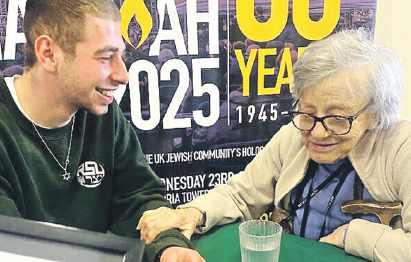
Janine Weber, who survived the Holocaust by moving between hiding places in occupied Poland, met with FZY’s Aimee Soller and wrote: “I hope young people will stand up to racism and anti-Semitism. They must not forget the six million Jews who were murdered, including most of my family.”
Henny Franks, 102, met with BBYO’s Felix Hart and wrote: “Try
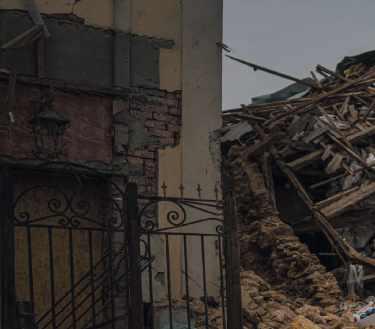

forget and that we keep moving on towards a peaceful and harmonious future.”
Sarah Jane Burstein, Jewish Care’s Holocaust Survivors’ Centre and outreach coordinator, said: “Intergenerational work with survivors to support them in sharing their experiences, as part of their legacy, has never been more important and is something we prioritise.
A Passover Haggadah incorporating personal testimonies from Israeli hostages and their families has been released by the Hostages and Missing Families Forum in an attempt to unite the themes of Exodus with today’s call for freedom.
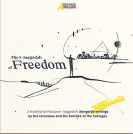

and be happy even if you’re not because when you laugh the world laughs with you, but when you cry, you cry alone.”
Jonah Levy, a second-year student from Bristol University representing RSY – Netzer, who met with Kindertransport refugee Inow, said: “I think it’s really important that we remember the atrocities of the past, never
“Jewish youth organisations play a vital role in ensuring future generations remain connected to their history, preserving the memory of survivors and learning the lessons of the past. This was an incredibly uplifting and important session for our members as we mark the 80th year since the liberation of Bergen Belsen.”
The meetings were recorded and will form part of a video for the national Yom HaShoah campaign, encouraging attendance at the UK 80th year commemoration of the end of the Holocaust on 23 April.
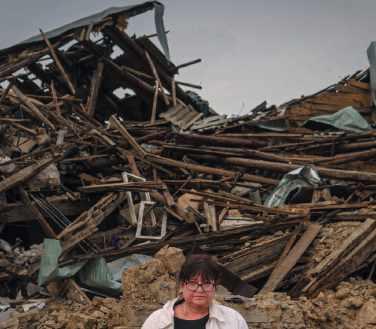
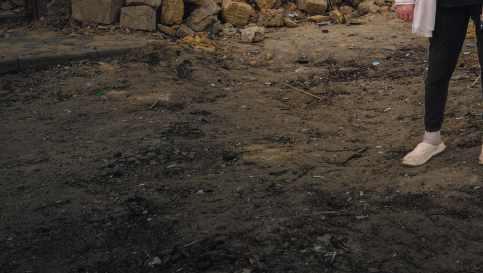
The Haggadah of Freedom features the full Hebrew and English text of the traditional seder service, accompanied by stories, letters and reflections from those who have returned from captivity in Gaza and the families of those still held hostage.
Among the accounts are the makeshift Seder that hostages Liri Albag and Agam Berger held while imprisoned, the letter written by IDF soldier Hadar Goldin to his fiancée on the eve of Passover in 2014 before his abduction, and the music that gave strength to Sagui Dekel Chen during his ordeal.
Also included is the story of Avraham Mengistu, who was released earlier this year after a decade in Hamas captivity, as well as modern reflections on the ancient text, such as Moses’ moment of realisation, interpreted through the perspective of Ruby Chen, father of released hostage Itay Chen.
• Available in hardback, all proceeds from sales go directly to the Hostage Families Forum
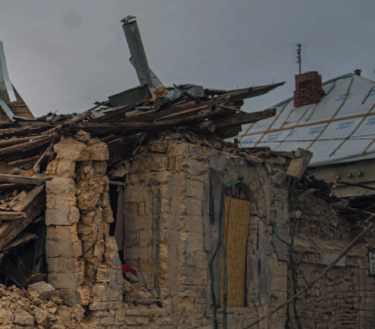
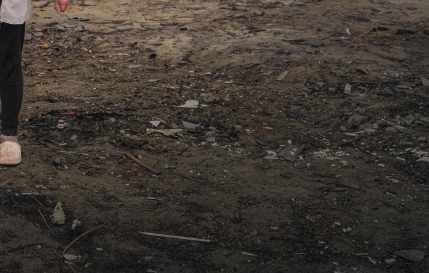

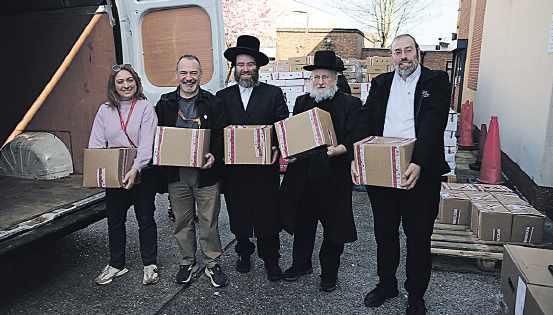
More than 1,600 Orthodox Jewish families in Hackney, Haringey and nearby boroughs received essential kosher food parcels on 30 March as part of a large-scale Passover distribution e ort by Food Lifeline/ZSV, writes Michelle Rosenberg.
Held at the charity’s Hackney warehouse, the annual operation aimed to support families struggling with the cost of living ahead of Pesach. Over 50 volunteers packed and delivered parcels containing chicken, matzah, grape juice, fresh produce and other staples, “ensuring sensitivity and care is maintained for those in need.”
The event was attended by councillors and senior o cers from Hackney and Haringey, including councillors Ajda Ovat, Sam Pallis, Christopher Kennedy, Michael Desmond, Sade Etti, Simche Steinberger and Mark Grosskopf. Trustees of
the ZSV Trust were also present. Organisers said their involvement “highlighted the strong partnership between local authorities and grassroots Jewish organisations tackling poverty in culturally sensitive ways”.
Founded in 1980, Food Lifeline supports people unable to access mainstream foodbanks due to religious dietary restrictions.
With ongoing support from Hackney Council and the Household Support Fund, the charity now helps more than 2,800 households annually with food, clothing, utility support and welfare referrals.
“This year’s distribution not only highlighted the urgent needs exacerbated by the cost-of-living crisis but also celebrated the power of community, partnership, and targeted support that meets cultural sensitivities,” the charity said.
A Pesach gift box sent to the Greenwich and Docklands Jewish community has been defaced with the words “Free Palestine”.
The package was part of a wide-reaching matzah distribution campaign led by the European Jewish Association in partnership with the Rabbinical Centre of Europe (RCE) and the BASSAD organisation.
EJA chair Rabbi Menachem Margolin called the incident “troubling”, saying “using a religious delivery to convey such a message – particularly during a significant holiday – is inappropriate and unsettling for the receiving community.
We encourage respectful dialogue and coexistence, and we hope this remains an isolated event. Our focus remains on uplifting and supporting Jewish communities across Europe.”
British Airways has resumed flights to Israel, landing its first aircraft in Tel Aviv nearly six months after it suspended services following the outbreak of the Israel-Hamas war.
The British flag carrier’s return to BenGurion Airport comes just in time for the high-demand travel period around Passover and Easter. A red-eye flight from London Heathrow touched down in the early hours of Sunday, with a morning departure back to London following shortly after sunrise.
The move makes BA one of the first major international airlines to reintroduce regular routes to Israel since the outbreak of war last October, which prompted widespread flight suspensions across the aviation industry.
Israel’s national airline El Al has continued to operate multiple daily flights throughout the conflict, including from both Heathrow and Luton, but limited competition drove ticket prices up, with some passengers accusing the airline of price gouging.
In addition to El Al, Israir and Wizz Air have o ered limited service from Tel Aviv to the UK. Virgin Atlantic, which also halted operations in the early weeks of the war, is not expected to resume flights until October.
BA’s decision to return is timely for travellers preparing to visit Israel over Passover, which begins on Saturday evening.
The airline has not yet confirmed whether it plans to return to a full daily schedule.
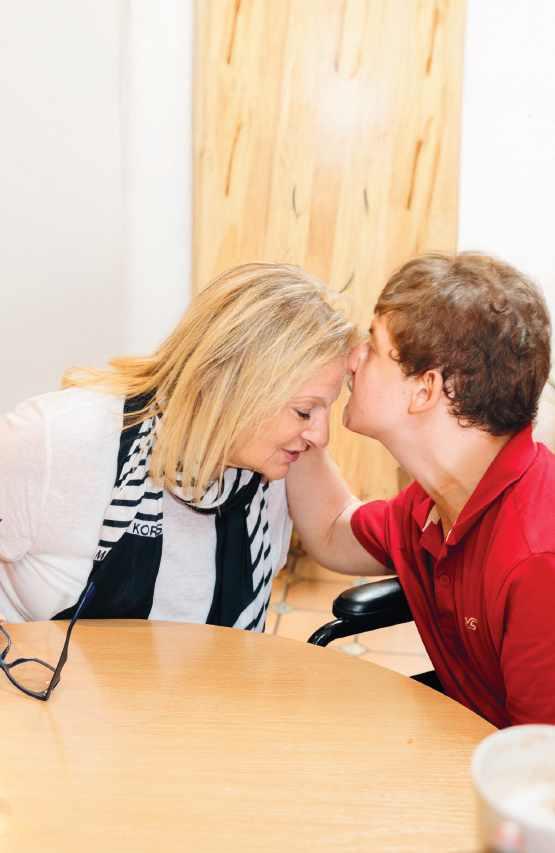
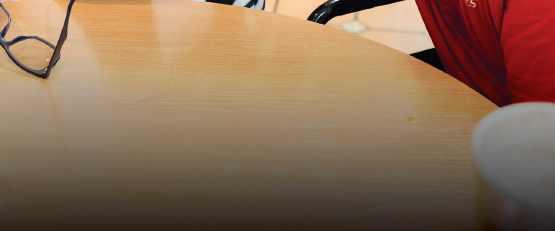
Eden was born with a rare genetic condition, and I felt alone. We began to close in on ourselves and create our own little world. When a friend mentioned Norwood to me, I realised we weren’t on our own any more. They have been there for Eden and me ever since, at every step of the way.
Eden loves the sense of family and community in his Norwood home where he now proudly lives his own life. I no longer have to worry about him.

We support and empower neurodiverse children, their families and people with learning disabilities to live their
by Annabel Sinclair annabel@jewishnews.co.uk
A poll has found that a significant number of Arab citizens of Israel support joining future governing coalitions, a shift that could reshape the country’s political map ahead of the next national elections.
Commissioned by The Abraham Initiatives and conducted by the Statnet Institute, the survey indicates that 44 percent of Arab respondents support participation in any government coalition, while a further 33 percent favour joining a centre-left coalition. Only 12 percent support backing a government from the outside.
Amnon Be’eri Sulitzeanu, co-CEO of The Abraham Initiatives, told Jewish News that the results show a clear message from the Arab public: “They are interested in two things – joint participation of the Arab lists and political influence through entering the government or supporting it from the outside.”
He added: “These are very encour-
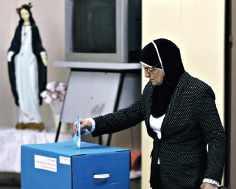
aging signs for those who aspire to see the establishment of a centre-left government in Israel. To this end, the leaders of the centre-left parties must see the Arab public and the Arab parties that represent it as completely legitimate partners for political cooperation.”
According to the poll, a joint electoral list of the four central Arab parties – Hadash, Ta’al, Ra’am (United Arab List), and Balad – would win at least 13 seats if an election were held today. This compares to the 10 seats currently held across Hadash-Ta’al and Ra’am,
with Balad not passing the electoral threshold in the last election.
The poll also found overwhelming support for political unity among Arab parties. Some 89 percent of respondents backed the idea of forming a joint list comprising all four Arab political factions. Internal division was cited by 18 percent as a barrier to voting, while 30 percent named a lack of political impact as the main reason for not turning out at the ballot box.
Crime and violence in Arab communities remain the most pressing issue, with 64 percent identifying it as their top concern. A quarter of respondents said it was the primary factor motivating their vote.
The Abraham Initiatives, which works to promote equality and a shared society for Jewish and Arab citizens of Israel, is leading efforts to boost voter engagement and foster cross-community cooperation.
It says the findings reflect both an appetite for change and a challenge to centre-left parties to treat Arab political voices as legitimate coalition partners.

An Israeli rescue o cer deployed to Thailand after last month’s deadly earthquake has described the “complex and emotional” mission to recover victims from a collapsed high-rise construction site in Bangkok.
Speaking to Jewish News, Major (res) D, the Behaviour and Population O cer with the IDF’s Urban Search and Rescue (US&R) unit, said her team arrived in Thailand within 48 hours of being called up.
The 21-member Israeli delegation includes engineers, data intelligence experts, and population behaviour specialists sent to assist Thai authorities in the aftermath of the 7.7 magnitude quake that struck near Mandalay on 28 March.
Over 1,600 people have been confirmed dead across Thailand and Myanmar.
In Bangkok, 81 workers are believed to have been trapped beneath a 33-storey building under construction.
“We were told before

JAKE LOST HIS LIFE PROTECTING OTHERS LET’S GIVE LIFE CHANGING OPPORTUNITIES IN HIS NAME THIS PESACH
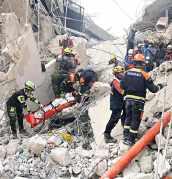
we left that this would be a 10-day delegation, but the situation is still evolving,” said Major D. “We were sent here modestly, to see what the Thai army needed – and now we’re advising on the site every day.”
The Israeli team, dispatched on the orders of Benjamin Netanyahu and Israel’s National Security Council, has built a 3D model of the collapsed structure to help locate missing persons. “It maps out the floors and where people were working. All rescue teams can use it to see the spread of victims,” she said.
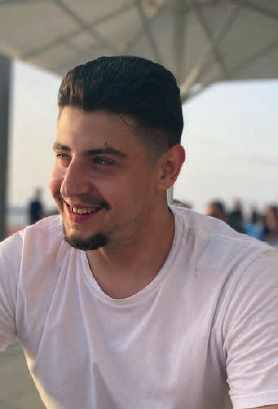
We have established the Jake Marlowe Memorial Scholarship to honour British born Jake, who was tragically murdered while working in security at the Nova Festival on 7 October. ship,
Please help us to fully endow the Jake Marlowe Memorial Scholarship, so that it can be given to a worthy recipient every year
Youth Aliyah Child Rescue cares for thousands of at-risk children in our five Youth Villages The first recipient, Ethiopian Israeli Awaka Melisa, has overcome profound adversity and now looks forward to a brighter future, thanks to this scholarship. He is pictured below with Jake’s incredible parents, Lisa and Michael Marlowe.


HONOUR A HERO
EMPOWER ISRAEL’S YOUTH
SECURE ISRAEL’S TOMORROW



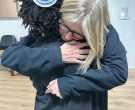

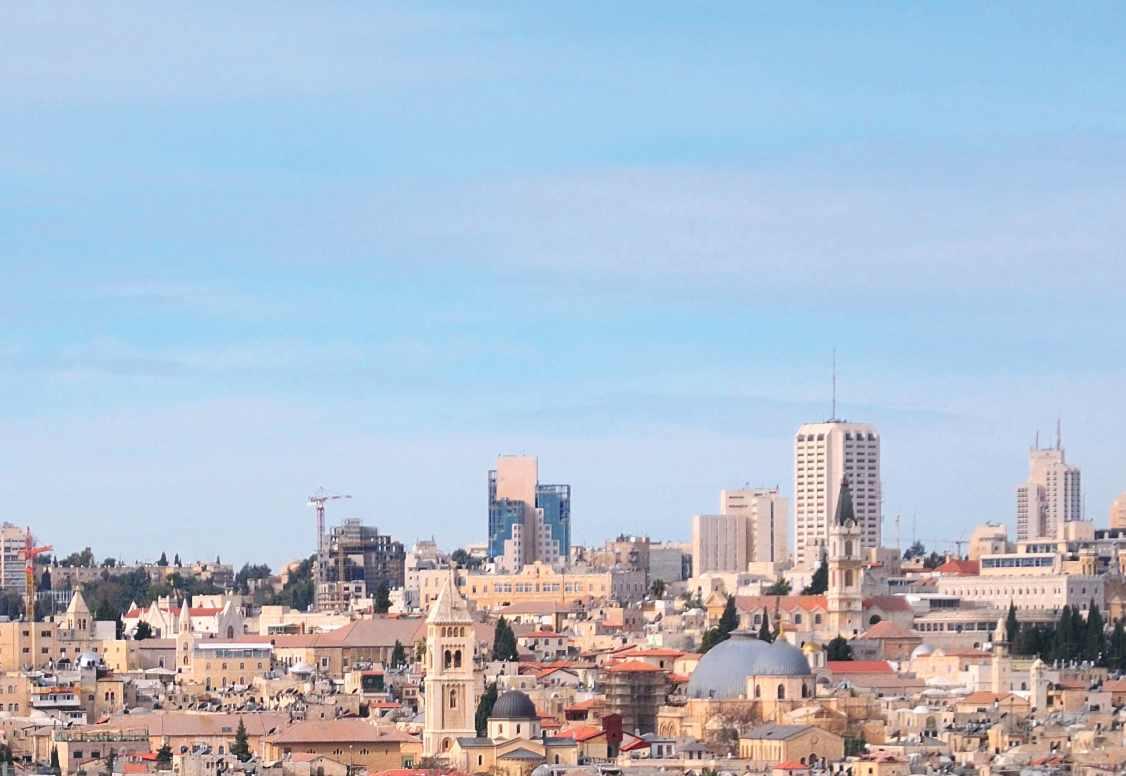



Editorial comment and letters to the editor
Israel’s decision to deny entry to British Labour MPs Abtisam Mohamed and Yuan Yang has ignited fierce debate. While nations possess the sovereign right to control their borders, such actions warrant careful consideration, especially for a democracy like Israel that prides itself on openness and pluralism in a region infamous for the opposite.
Mohamed has been a willfully one-eyed critic of Israel’s policies, accusing it of ethnic cleansing and the forced displacement of Palestinians. While such statements are lazy and inflammatory, responding by barring entry risks undermining the democratic values Israel seeks to uphold.
Israel stands out in the Middle East as a beacon of democracy, characterised by its commitment to free speech, robust debate and the exchange of diverse viewpoints. Unlike many repressive regimes in the region, Israel has historically maintained open doors, welcoming individuals regardless of their opinions.
By excluding parliamentarians, Israel lends credence to criticism and misses the chance to demonstrate the very democratic principles that differentiate it from its oppressive neighbours. Engagement, rather than exclusion, often proves more effective in addressing dissent and fostering mutual understanding.
As Luke Akehurst, MP for North Durham and former director of the We Believe In Israel campaign group emphasised this week: “Anything that hinders MPs’ ability to reach an informed view is to be deplored.”
In navigating the complex landscape of international relations and public opinion, Israel’s strength lies in its ability to remain open and receptive, even to those who challenge it. Sadly, this does not seem to be a principle the current coalition prizes.
Upholding these values not only counters the narratives of its detractors but also reaffirms the democratic ideals that are central to its very identity.
Far be it from me to doubt or disrespect the sincerity of the feelings of the “We Democracy” UK-based Israeli group (21 March), but I feel its perfectly agreeable views on the actions of the Netanyahu government require some tempering, as far as those actions relate to the resumed war in Gaza.
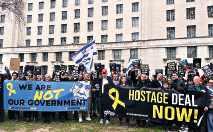
The group is absolutely spot-on in calling out Mr Netanyahu’s wrecking ball to fragile democratic institutions, checks and balances in Israel. His intended firings of the attorney general and head of the Shin Bet are singularly disgraceful – and the group is correct to imply resuming the war provides extremely convenient political cover to Mr Netanyahu in that context.
However, to suggest “the real aim of this war is the survival of Netanyahu’s government, nothing else”, fails to account for other independent
“You can find us in a range of places…” states the Jewish Museum of London website. In a dedicated building? No.
Jewish museums around the world’s capital cities abound – but not here in the UK since the building in Camden Town closed.
I’m split about the planned Shoah memorial, between the views of Alex Brummer and Ruth Deech as stated in your newspaper.
There’s an argument for re-establishing a home for a Jewish museum in London to equal those in New York, Berlin and the others worldwide. That our Judaica is tucked away, online or on loan, shames us. If funding is to be sourced, it is arguable it be for a museum rather than another Shoah memorial, and I speak as one of so many whose family members perished in various death camps.
When my gazillion-pound lottery win comes through, I’ll fund it. Meanwhile, as the community is under threat from Jew hate, perhaps we should be looking forward as well as back.
Barry Hyman, Bushey Heath
Regardless of what is happening in Israeli politics and whether the We Democracy movement has a valid point or not, the decision to hold a protest against the Israeli government in central London, against a backdrop of unprecedented levels of antisemitism and on the same weekend as several hate marches were taking place against Israel’s very existence, was in poor judgment. It serves as an own goal, giving antisemites ammunition, while achieving nothing of substance.
Conversations about what is happening in Israel are essential within the community, but there is no reason for them to be held publicly on the streets of this city.
Jonathan Bloom, By email
I write to express my deep concern regarding London mayor Sadiq Khan’s recent Eid message, in which he cited Hamas propaganda and described the situation In Gaza as a “betrayal of humanity”.

His statement has raised significant apprehension within the community, due particularly to the sources of the figures and the language employed.
The casualty numbers he referenced originated from a proscribed terrorist organisation. Relying on such unverified figures, which do not distinguish between combatants and non-combatants, disseminates misleading information.
The Israeli Embassy was right to
developments. The IDF’s top brass had repeatedly told Mr Netanyahu last summer conditions for a ceasefire and hostage deal were ripe, as there was nothing major left to achieve militarily in Gaza. And yet some weeks ago, the IDF picked up intelligence on new plans for attacks by Hamas under the cover of the ceasefire – and not just the general threat of Hamas regrouping and rearming.
However credible such reports were, letting them slide was not an option open to the IDF this time, after all the failings of 7 October – however helpful that may be to Mr Netanyahu.
In a spirit of total respect to “We Democracy”, I suggest the reasons for returning to war in Gaza are better seen through this more nuanced lens, rather than one based solely on Mr Netanyahu’s selfish political interests.
Naji Tilley, By email
The revelation that the BBC declined antisemitism training from Lord Mann casts serious doubt on the corporation’s commitment to resolving the long-standing allegations of bias and inaccurate reporting on Israel. Even more alarming is the seeming failure of the BBC to report the recent critical story detailing how Gazan protest leader Oday Nasser Al Rabay was tortured and murdered, along with five others, by Hamas following protests against the terror group.
Journalists risking their lives to report truthfully would undoubtedly face similar dangers from Hamas if they were to expose its brutal actions. Yet, some months ago, the BBC appears to have replaced a majorly significant disclaimer in its reporting, namely that Hamas is a proscribed a terrorist organisation by many western countries including the UK, with the disclaimer that journalists are banned from Gaza due to a security concern.
The torture and murder of Oday Nasser Al Rabay demonstrates clearly genuine journalism in Gaza would indeed be extremely unsafe.
Eli Cohen, NW11
express dismay over this, emphasising the importance of accurate data in such sensitive matters. London is celebrated for its diversity and unity and it is crucial that communications, especially during significant religious observances, promote harmony and understanding among all communities.
I urge the mayor, for whom I voted in last year’s election for City Hall, to consider the broader implications of his public statements and ensure his future messages on Israel and its war of survival are balanced, well-informed, and conducive to fostering mutual respect among London’s diverse population.
Dana Sigfried, Manchester

The Chesed Pesach appeal would not be so vital were it not for the seemingly mandatory price hikes on everyday products marketed as kosher for Pesach. During Covid, it was permitted to purchase (some) groceries that were not especially labelled for Pesach use.
If it was deemed permissible then, why not now?
Leila Cumber, Finchley
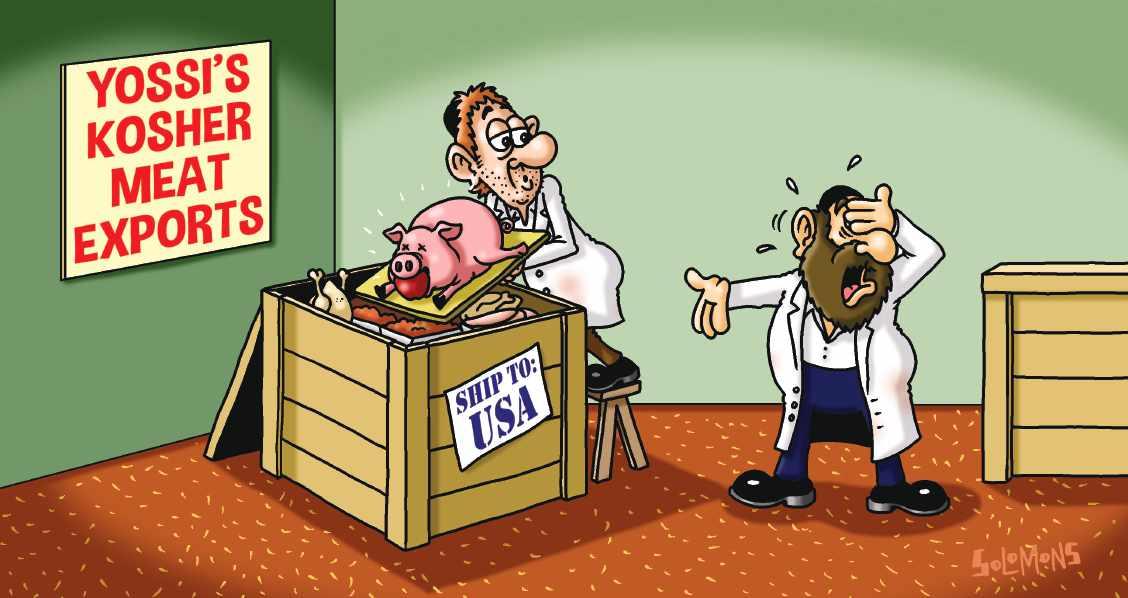
260x165
‘No, Manny, I said our exports to the US need 10 percent tariff added, not 10 percent treif’
EL AL wishes you a holiday filled with renewal, hope and freedom

Before 7 October, Zecharia and Nava Deutsch had a warm working relationship with Farhat Yaqoob, the Muslim chaplain at Leeds University. As the Jewish chaplains on campus, the Deutsches would often work alongside Yaqoob to host interfaith events, breakfasts and so forth.
breakfasts
After 7 October, everything changed. In the weeks following the Hamas massacre, Nava told me that she contacted Farhat, suggesting an interfaith event that addressed the emotional challenges faced by both sets of students. She never heard back.
You may have read about what happened to the Deutsches next. As an Israeli man, Zecharia was called up to do reserve duty and duly flew to Israel to serve as a guard on supply convoys going into Gaza.


Back in Leeds, all hell broke loose. In late October 2023, Deutsch shared a video

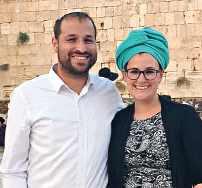
of his unit singing and dancing together with some students back home. The video was leaked and the Deutsches became the target of a hate campaign, which included a wave of vicious death threats, forcing them temporarily to move out of their home.
But they still never heard from Farhat

Yaqoob. Through a mutual acquaintance, they were told that Yaqoob found the idea of meeting up too di cult. In March 2024, with the Deutsch row ongoing, Yaqoob resigned from her job as chaplain, saying her principles no longer aligned with those of the university.
Di erent versions of this sad story have played out across Britain and indeed the world over the past 18 months. Once-convivial relationships between Jews and Muslims have been torched. Friendships have been broken and associations shattered.
The fragile tapestry of interfaith relations, with the odd admirable exception, has all but unravelled. It will be extremely di cult to put it back together again.
Of course relations between Britain’s various Jewish and Muslim communities have always had strain upon them, particularly in times of Middle Eastern conflict. But there has also been a shared solidarity. After all, a fair amount of the bigotry aimed at both communities emanates from the same place. Jews and Muslims have both had to find their way as immigrants to this country, and both have felt the sting of otherness that leads to a natural sympathy. Any number of valuable organisations, from Muslim Jewish London Roots to the Muslim Jewish Forum of Greater Manchester to the Nisa-Nashim Jewish Muslim Women’s Network, have sought to build bonds and bridges between the faiths.
Ten years ago, I used to watch an interfaith comedy troupe called MuJewz, who had fun playing on the similarities and di erences between the two faiths. I’m afraid it’s di cult to imagine such a troupe flourishing today.
Since 7 October we are in a very di erent and much darker place. Again, there are exceptions, resilient bonds left unbroken.
But many interfaith relationships have simply been washed away by the flood of anguish and resentment that continues to sweep over anyone connected to this conflict. This issue of Israel and Palestine is uniquely corrosive and can dissolve even firm friendships in a single acidic argument.
Gaza has sparked a political awakening for Britain’s Muslims that has ramifications far beyond relations with the Jewish community. It has frayed the once close relationship between many Muslims and the Labour Party, leading to the emergence of independent MPs
and councillors and serving as a rallying cry from Whitechapel to Walsall.
The pollster Luke Tryl has compared the Gaza issue for Muslim voters to that of Brexit for Red Wall voters in the north of England. It is something they care deeply about, but also something that is a vehicle for expressing deeper dissatisfaction about a lack of political voice. For a generation of young Muslim voters, this Gaza war will serve as a coming of age moment, a turning point.
The war has also, if we’re frank, provoked a surge of antisemitic sentiment and incidents across Muslim communities in Britain. This is a problem that runs deep and broad and isn’t going anywhere.
And, if we’re really frank, which we should be, there has also been a clear rise in antiMuslim sentiment among some British Jews. We’ve all heard it from friends or relatives, or seen it in Whatsapp groups and Facebook pages. There has been a normalisation of bigotry and often a reluctance to call it out.
So I’m not going to end this column with a call for everyone to hold hands and sing Kumbaya, because that would be naive.
Clearly, many Jews and Muslims have deep and potentially irreconcilable di erences over Israel and Palestine. And their allegiances and emotions towards this issue far outweigh any commitment to interfaith goodwill, which was perhaps in many cases only ever skin deep.
Given where things seem to be headed over there, we can expect relations to degrade further over here. And given there are four million Muslims in this country, this number represents an understandable concern for British Jews about where things are headed.
We can’t just all link arms and pray for peace. But neither can we simply give up on the idea of improving and maintaining relations with our Muslim compatriots, with whom we share an inextricable future on this island.
We mustn’t forget that four million encompasses all manner of di erent people and communities; among them many moderates who reject radicalism, friends who reject bigotry and neighbours who yearn for peace.
We should continue working to reach these people, for they are not our enemies.
Josh Glancy is news review editor of the Sunday Times
Let’s ensure every deaf child in our community can achieve their full potential and lead the great lives they deserve.
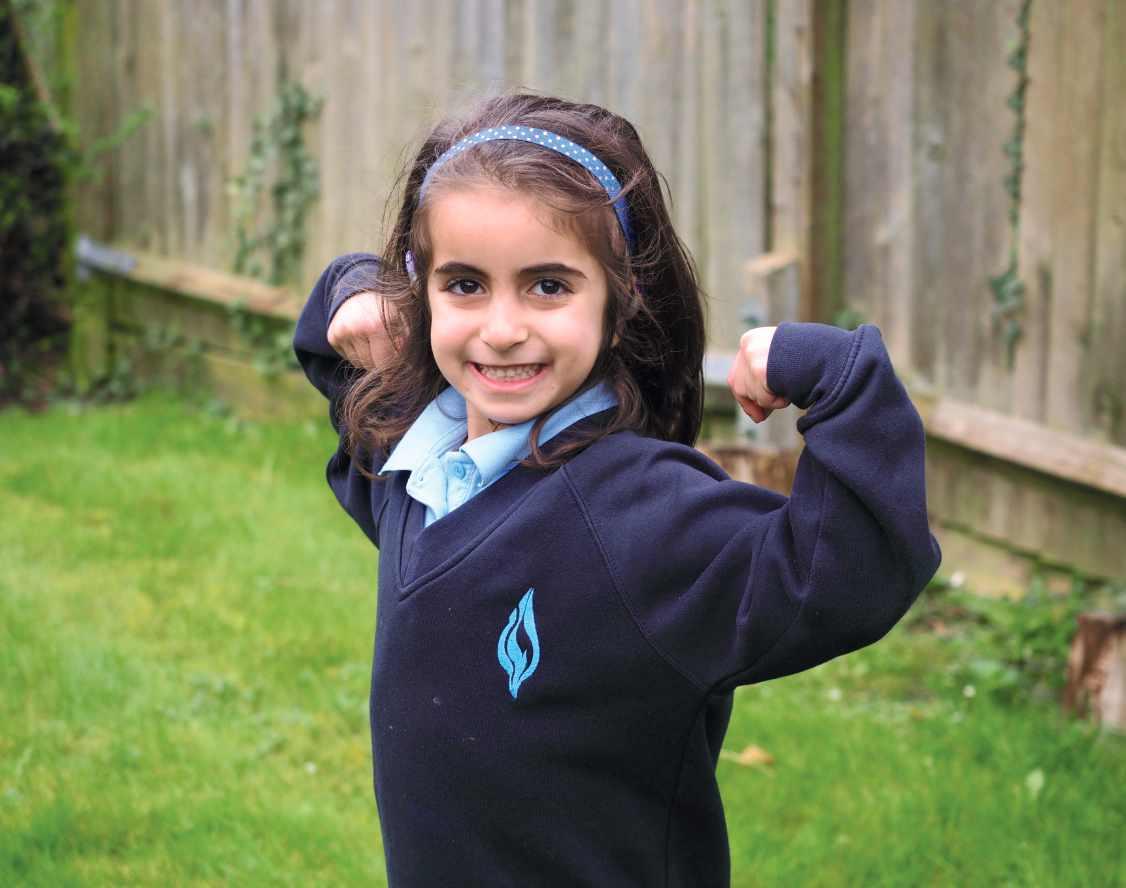
“I’m Emily, and I’m 6 years, 3 months and two weeks old!
I’m the only deaf child in my school and it’s a big struggle. I come home really tired.
Mummy says it’s because I don’t want to do my homework, but that’s not right.
It’s because I have to work extra hard to hear my teacher as my classroom is so noisy and echoey, especially when it rains.
Mummy told me there are things called acoustic clouds which could hang above me in class and help me to hear better at school. And they can come with me when I move classrooms. That’s so exciting – my very own clouds!
Soon, I’ll be able to hear my teacher, be top of the class and when I grow up I will write books for children just like me.”
Please help us to buy Emily’s clouds this Pesach! Let’s ensure that she, and every Jewish deaf child, can flourish at school.
To donate scan the QR code, visit jdeaf.org.uk or call 020 8446 0502 Thank you x

RABBI DANNY RICH
SENIOR RABBI, SOUTHGATE PROGRESSIVE SYNAGOGUE
When Liberal Judaism – then called the Jewish Religion Union – was founded in 1902, it was done in response to a perceived apathy and an absence of spiritual awareness in the existing Orthodox and Reform synagogues of the time.
Its founders, Claude Montefiore and Lily Montagu, along with Britain’s first Liberal rabbi, Israel Mattuck, were radicals. For the first time in England, men and women sat together, services were mainly in English and there were developments in the use of music.
I am a third-generation Liberal (with a capital ‘L’) and liberal Jew whose grandparents on both sides were actively involved in the early decades of the JRU, particularly at the South London Liberal Synagogue (founded in 1929).
My personal and professional life has been characterised by Liberal Judaism. I ministered to the Kingston Liberal Synagogue for some two decades; I served as Liberal Judaism’s
senior rabbi and chief executive from 2005 to 2020; and I am now the rabbi to Southgate Progressive Synagogue (SPS) and Stevenage Liberal Synagogue (SLS).
The 20th century was, of course, a tumultuous time which witnessed two world wars, the Shoah, the foundation of the State of Israel and the rapid growth of Liberal and Reform synagogues. Throughout it all, Liberal Judaism’s radical streak remained and evolved.
My proudest moment as the professional head of Liberal Judaism was giving evidence as the only religious Jewish witness in favour of the Equal Marriage Bill Committee which subsequently was enshrined in law.
There has been another constant thread – talk that Liberal and Reform communities might join one organisation, forming a single Progressive Judaism for the UK.
First attempted seriously in the 1930s, the most ambitious plans for a single synagogue association occurred in the mid-1980s but collapsed amid mutual recrimination. I have long held – particularly since some of my best friends and most inspiring role models have been reform rabbis – that the day will come.
While I have, until now, maintained a vow of self-imposed silence, I believe it is time for me to express my support. There are four reasons. First, there is little di erence between the two movements today (unlike in the 1930s or even the 1980s). Liberal communities have become more traditional in practice and Reform synagogues more radical on social issues. Second, I believe the current Reform Movement, via its leadership, is bringing to the table a capacity for generosity and a willingness to acknowledge the equal but di erent contribution which each institution can bring.
Third, I can give the answer of ‘Yes’ to my members when they ask the two fundamental questions: whether the change will result in an increased capacity to retain funds
locally rather than centrally, and whether the choices for what happens to a member after death will be enhanced.
Finally, and most importantly, is that Progressive Judaism can serve a higher purpose. An organisation representing one third of synagogue-a liated Jews – and many of the non-a liated – will make a better contribution to British society and beyond. It will increase the likelihood of a modern Jewish o er for my grandchildren and their peers and the generations that follow them. Judaism, and indeed Liberal Judaism, does not exist for selfperpetuation: its raison d’etre is to bring Jewish moral and spiritual values to the world.
To quote Rabbi Dr Israel Mattuck: “If Judaism is to exercise an influence in the world, it must be something more than tradition which some Jews like to maintain for their satisfaction; it must be a message to the world. It must embody the thought, the ideas, which men and women accept as true on su cient ground. It cannot have a message for the world of today if it clings to obsolete beliefs and ideas. And, it must address itself to the problems that agitate our world.”


OLIVIA MARKSWOLDMAN CHIEF EXECUTIVE, HOLOCAUST MEMORIAL DAY TRUST
The liberation of the BergenBelsen concentration camp by British forces on 15 April 1945 remains a defining moment in our nation’s history. The predecessor regiments of today’s Light Dragoons witnessed the full extent of Nazi brutality first hand, confronting scenes of unimaginable su ering and horror.
Eighty years on, the regiment, based in Catterick, north Yorkshire, remains committed to ensuring new recruits understand the significance of this history.
They learn about the crucial role their predecessors played in the camp’s liberation and the horrific reality they uncovered. For that, they deserve the highest praise – and their dedication to remembrance is an example that should be emulated by all, whether in schools, businesses, public institutions or by individuals.
Britain played a vital role in defeating Nazi Germany, and our military history is deeply tied to the responsibility of confronting evil. The Light Dragoons ensure new soldiers grasp not just the depths of human cruelty but, more importantly, the duty to stand against it.
In doing so, they honour the legacy of those who came before them and continue to be a light in the darkness.
Yet, this dedication to memory should not be limited to military bases and those in uniform. It is on all of us – our shared responsibility, our collective duty – to ensure the systematic murder of six million innocent Jewish men, women and children is never forgotten.
The Light Dragoons are not just remembering the past – they are preparing for the future. They recognise that vigilance is not a passive act of commemoration but an active defence against those who would repeat history’s darkest chapters.
Their commitment is commendable, but it also raises a challenge for the rest of us. Are our schools teaching the Holocaust with the depth and gravity it demands? Do businesses actively promote a culture of tolerance and respect,

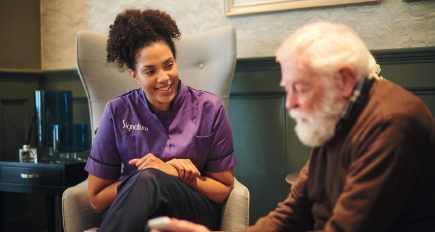

or are they complicit in perpetuating harmful stereotypes? Are our public institutions taking a stand against hate speech, or do they merely hide behind the shield of ‘free speech’?
Too often, the answer to all these questions is a resounding no.
We sit in complacency, allowing the lessons of Bergen-Belsen to fade into the background. It’s not enough to applaud the Light Dragoons; we must follow their example. Otherwise, our praise is meaningless.
The uncomfortable truth is that the Holocaust did not happen overnight. It was the result of a slow, insidious process: the dehumanisation of the ‘other’, the normalisation of hate and the silent complicity of bystanders.
Bergen-Belsen may not have had gas chambers, but the death it inflicted was just as cruel – slow and agonising, from starvation, disease and despair.
Today, little of the physical camp remains; after the liberation, British troops burned the barracks and huts to prevent the spread of disease. Butmass graves and monuments still stand, serving as powerful reminders of the site’s horrific past. Visitors walk the grounds
in silence, grappling with the unimaginable scale of what the Nazis did. Many undoubtedly leave deeply moved, and perhaps some are even inspired to work toward a more just world.
Like all Nazi concentration camps, BergenBelsen will forever be a stain on humanity’s conscience. That is why at the Holocaust Memorial Day Trust, survivor testimonies are at the heart of what we do.
These are not only historical accounts – they are deeply personal witness testimonies that give the human face to the historical facts and help us to try to understand the experiences of those who endured the unimaginable.
They serve as powerful reminders of the human cost of hate and intolerance. We are committed to raising awareness of where prejudice and hatred can lead. The rise of Holocaust denial and antisemitism today is deeply alarming – these forces do not just distort history; in distorting the historical truth they threaten the very foundations of our society. Britain has every right to be proud of its military history, but pride alone is not enough.
The memory of Bergen-Belsen must be actively preserved – by all of us.
we bring together expert teams to offer a range of personalised services, ensuring every resident feels supported,
and empowered to live life to the fullest.
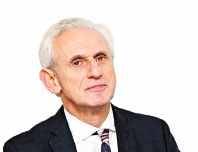
ALEX BRUMMER CITY EDITOR, THE DAILY MAIL
In kibbutz Kfar Aza, two miles from the Gaza border, it is impossible to escape the ghosts of 7 October.
Eighteen months ago, 67 Israelis –a tenth of the community’s population – were slaughtered here.
The terrorists stormed the kibbutz, destroyed homes and seized women and children to be held hostage in Gaza. When I visited last week, the scars of that horrifying attack remained. The blackened homes of families – many of them peaceniks who worked alongside Palestinians in the fields – are untouched. Just the bloodstains and dismembered bodies are gone.
For the small group of Israelis who have returned, their emotion is overwhelming. Rage. Shachar, whose wife miraculously survived after hiding for 30 hours in a safe room, says his “blood is still boiling” . “I don’t care if the leaders in Gaza build a fence to the heavens,” he tells me. “I don’t want to deal with those people again.”
From this kibbutz in the south to Jerusalem,
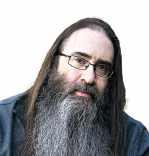

the anger is palpable. But for many Israelis the target is not simply Hamas, but their own mercurial prime minister, Benjamin Netanyahu, whose dwindling popularity has plummeted amid the breakdown of the fragile Gaza ceasefire and fears for the remaining hostages.
Since hostilities resumed, Hamas claims Israeli strikes have killed hundreds of Palestinians in Gaza . But, alarming as this bombardment is, it is an event with precedent. Leaders in domestic trouble create diversionary narratives.
Wherever Bibi goes now, he is dogged by demonstrators. In Jerusalem, I passed a noisy crowd of protesters – including an emaciated young man on hunger strike – wearing bright yellow outside the Israeli parliament and again outside the prime minister’s residence. They are furious with the government for not letting the ceasefire deal run its course.
While the fate of the remaining hostages is the principal cause of protesters’ passions, they also fear the threats they say Netanyahu poses to freedom of speech, independence of the security services, even democracy itself. I have been visiting family in Israel for decades. Never have I encountered such a divided society.
The Israel Defence Forces (IDF) is still the most trusted institution in the state by a long way – despite the barrage of overseas criticism since the latest fighting broke out in 2023. But the shift to the Right, a phenomenon which dates back to the election of prime minister Menachem Begin in 1971, has accelerated. And, alongside it, growing fears of an exodus.
Like many Jewish people, I always thought of Israel as a place of refuge if antisemitism in other parts of the world became intolerable. However, recent polling shows only 38 percent of Israelis would “prefer to stay in the country”.
I questioned why this with a cousin. The grandson of Holocaust survivors, he served in a high-tech IDF unit and admitted he too has been looking to start a new life in the US or Europe.
He fears his teenage children will be thrown into lengthy combat roles when they reach 18 – the age when military service becomes mandatory in Israel – with no end to the conflict in sight.
It is impossible to forget the fighting. Before one sits down to eat in the heart of Jerusalem, instructions are given as to where shelters are in case of a rocket or drone attack. But it is not just the military threats driving Israelis away.
As Netanyahu resumed the assault on Hamas strongholds, I recalled the 1997 satirical film Wag The Dog about a president who fabricates an overseas crisis to distract from a sex scandal.
Whether we like it or not, the idea every Jew is an ambassador for the Jewish people is deeply ingrained in us. After all, even in the most benign circumstances, it’s very human for non-Jews to extrapolate from one Jew to all Jews.
We “educate” the world about Jews just by existing so, inevitably, the way we represent Jews and Jewish life can be highly revealing about how we want to be seen and what we find Jewishly important enough to emphasise. Conversely, also revealing is what we hide or consider too unimportant to dwell on. Antisemites routinely accuse Jews of lying about who they are for nefarious purposes. And in the maelstrom of controversy around Israel, hasbara – public diplomacy for the Jewish state – is sometimes represented as having inordinate, sinister power.
What I am referring to is much less
conscious or dramatic; a widespread tendency among Jews to play down one particular side of Jewish life – the everyday stu Jews do. In my book Everyday Jews, I give a couple of examples of this unconscious misrepresentation. One is from the much-loved British comedy series Friday Night Dinner
In one episode, the ‘boys’ are asked to be pallbearers at the funeral of their (Jewish) uncle. In Jewish funerals in the UK, mourners never carry the co n. The other example is from the US TV series The Marvellous Mrs Maisel with an opening scene at a wedding dinner that includes a rabbi wearing a tallit (and not a tallit katan).
Again, it’s something that would never happen. What’s revealing about these examples – and there are many more – is that in other respects these are shows written by Jews that lovingly and accurately represent Jewish life in north London and the Upper West Side.
The point is they are faithful to a particular aspect of Jewish reality and not to another. They re-create how Jews speak, feel, emote and what they care about – in short, what it is to be Jewish. They are less interested in faithfully showing what Jews do, particularly in terms of religious practice.
Jews have a highly visible presence in postwar western culture. Through Jewish arts
and culture, the world has witnessed Jewish angst, Jewish humour, Jewish pride, Jewish self-loathing and all the other facets of Jewish being. The world has seen much less of the stu of Jewish doing, whether the committees we sit on, the services we sit through, the candles we light at home and the many other mundane things that make up Jewish life. Or rather, Jews do pay attention to everyday Jewish doing, but behind closed doors. This is the stu of Purim spiels, summer camp skits and the arts confined to Jewish spaces. In my book I suggest – cheekily I confess – our greatest artists are often those with the least consequential Jewish lives.
And the corollary – even cheekier – is the Jewish artists that have the most intimate relationship with Jewish doing are sometimes our least consequential artists. Why do Jews so often play down everyday Jewish doing? Not ignorance; at least not all the time.
Why would Robert Popper – writer of Friday Night Dinner – have made such an e ort to portray suburban Jewish life so perfectly in some respects and yet been so apathetic about including a practice that he would know full well Jews like the ones he brought to life would absolutely never do?
In Everyday Jews, I have tried to unpick the reasons Jews are often so di dent about
The deeply unpopular Bibi is a friendless leader who has clung to power for 17 years and clearly intends to stay in o ce until October 2026 – the last possible deadline for the next election. But there is no denying he is in trouble.
The scenes of armed Hamas operatives performing disturbing hostage release “ceremonies” last month were a reminder those orchestrating the atrocities remain active. Nowhere is this felt more powerfully than in southern Israel. Just a 15-minute drive from Kfar Aza is the site of the Nova Music Festival, where 524 Israelis were slaughtered on 7 October.
The site today is a sombre place, filled with row upon row of colourful memorials. Also there were grieving families and a group of foreign dignitaries taken to remember the atrocity.
Not that the horrors of that day can ever be forgotten. And, as violence explodes again in this troubled region, the threatening shadow recent events have cast for peace and democracy has never felt darker.
representing the everyday doing of Jewish life. Part of the reason is Jews are so often associated with the extraordinary, with the significant, it is di cult to square that with the undeniable existence of the ordinary.
That makes it much easier for writers and artists to focus on what it is to feel Jewish –which is often to feel extraordinary and angstridden – rather than the myriad actions that make up Jewish life.
Since 7 October, it has become ever more di cult for Jews to show our mundane side. It is much easier for Jews – of whatever opinion – to show how we are emoting, su ering and protesting, than to admit that everyday life is still continuing.
Indeed, it is sometimes politically more useful to represent us as bearing the weight of extraordinary times than to show us still carrying on with doing ordinary Jewish life. This is understandable, but the longterm e ect of this may simply reinforce the tendency to see Jews as irreducibly di erent and never normal.
Can we ever be ordinary and insignificant, given the long history of the world finding us so hateably significant (or for philosemites, loveably significant)? Would we even want to be an undistinguished sub-set of humanity? At least we need to be asking the question.

Hamas and attributing the protests to a shift in calculus away from a losing organisation rather than a genuine change in hearts and minds.
As soon as spontaneous protests began in northern Gaza against the war and against Hamas’s fascistic and dictatorial rule over the coastal enclave, a large number or pro-Israel, Jewish and self-identifying Zionist accounts began taking notice of this intriguing event.
As the protest expanded in scope in numbers, reach, slogans, significance, scope, a wide array of opinions began spreading within the Jewish online community about the nature of these demonstrations.
Some believed these were a hopeful sign that the wall of fear has collapsed, and Gazans are finally able to speak their minds against a ruthless terror organisation that has ruled them with an iron fist.
Others cast doubt on the sincerity of Gazans in the coastal enclave, questioning their true motives and only now coming out against

A few took it to an extreme dehumanisation end and claimed that these anti-Hamas protests are merely being staged by the terrorist organisation in an attempt to deflect attention and focus away from its dismal failure and losses in the war.
What is critical for Jewish allies to understand is the immense risk and cost associated with speaking out against an armed, violent, terrorist organisation and why it has been so immensely di cult for Gazans to demonstrate against the Islamist group.
It is also critical to compartmentalise the various issues associated with Gaza and understand that the transformation of the narrative and public opinion of the population is going to be a long journey and not merely something that is captured in a single event such as mass demonstrations.
Opposition to Hamas far pre-dates the war and 7 October; something I have said repeatedly for the better part of almost two years

Yes, Gazans are experiencing an horren-

For couples facing infertility, Pesach can bring unique challenges.

Chana’s Fertility Haggadah offers personal stories, client testimonials, and heartfelt reflections to bring comfort and connection during the chag.



dous chapter that is the deadliest in Palestinian modern history and unlike anything they have ever been through.
This is what is partially prompting the mass demonstrations against Hamas in the Strip.
However, the incessant dehumanisation of Gazans with allegations that all Gazans are Hamas, were participants in the 7 October massacre or are joyous murderers is part of an unhelpful narrative that is widely circulated within “pro-Israel” communities without critical thinking or a true understanding of Gaza’s people or population.
As di cult as it might be for some, given the horrendous atrocities of 7 October and



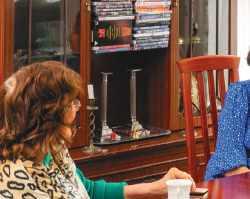
the criminality of Hamas, it is critical to remember the Palestinian people are human beings with normal human aspirations that are not alien or extraterrestrial.
Gazans want dignity, freedom, life and the ability to provide for themselves and their families without Islamist ideology holding them hostage to a nefarious, failed and deadly armed resistance narrative and project.
Scenes of Gazans chanting in the tens of thousands that “Hamas is a terrorist” should give pause to anyone who refuses to see the humanity of a beaten population that is speaking out for itself and is refusing to be sidelined or ignored.
I call on all Jewish allies and partners who want to see a di erent path forward between Palestinians and Israelis.
The scenes of Palestinian children in Gaza screaming “We want to live, we don’t want to die”, or of tribal elders talking about their commitment to non-violence and peace, should be flagrant and obvious signs to all concerned that the public opinion of Gazans and Palestinians in the coastal enclave is elastic and subject to change.
Enabling independent living.
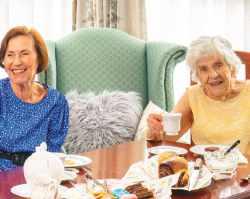
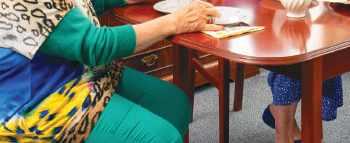
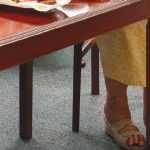

Pupils at Wohl Ilford Jewish Primary enjoyed an enriching class in preparation for Pesach. Joined by family members, the students shared their knowledge of the festival through singing, dancing and games. Year 6 pupils created their own Haggadah with poems about each step of the seder.
Camp Simcha brought its magic to almost 400 family members in London and Manchester with trampolining and adventure parties. Among the Manchester youngsters was five-year-old Saul, who is having treatment for leukaemia. His mum Michaela said: “Saul had the best afternoon.” Herts parent Cassie, whose four-year-old daughter Remy was diagnosed with a life-threatening clotting disease aged six months, said: “We go through so much stress, so having these moments as a family means everything.”
Kisharon Noé School was transformed into an immersive biblical experience as pupils and adults supported by Kisharon Langdon were invited to step into the story of Passover through a Plagues Exhibition. There were ten stations, each dedicated to one of the plagues. Participants watched water turn to blood with the addition of red food colouring, felt the weight of hail through giant balls of ice, and experienced darkness by donning blackout sunglasses.
Side by Side School in Stamford Hill welcomed back the Tzivos Hashem Matzah Bakery this year, providing students with a hands-on, immersive experience in the traditional process of baking matzah. Dressed in baker’s hats and aprons, the students took part in every step of the process, from winnowing the flour to the final baking stage, gaining an authentic insight into this key part of Jewish tradition.
Ten Year 6 boys from Wolfson Hillel Primary won the Southeast England Pokemon Cup Regional qualifier. They will now go on to the next stage at Stoke City FC in May. Manager Adam Warner said he is hugely proud “for the boys to be representing the Jewish community as well as our borough (Enfield), county (Middlesex) and region Southeast”. Eight Y6 boys also claimed victory at the Tottenham Hotspur Premier League Primary Stars qualification tournament. They will now represent Spurs at Wolverhampton FC in June.
Zichron Menachem, an Israeli charity that supports children with cancer and their siblings, hosted a transformative camp in London for a group of 15 inspiring young women. The itinerary included a ride on the London Eye, a river cruise, go-karting, shopping trips to Westfield and Smyths Toy Store, ice-skating, mini-golf and a meeting with Israeli Ambassador Tzipi Hotovely. Chief executive Eli Seliger said: “This trip has given the girls strength and confidence to restart their lives with optimism.”
The Mosaic Jewish community’s Israel Society hosted an event featuring the Reform movement’s Oshra Schwartz, who
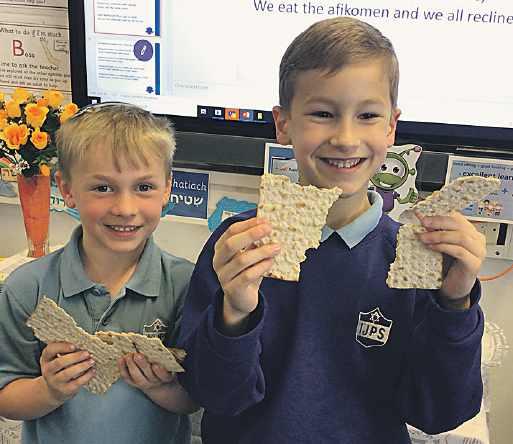


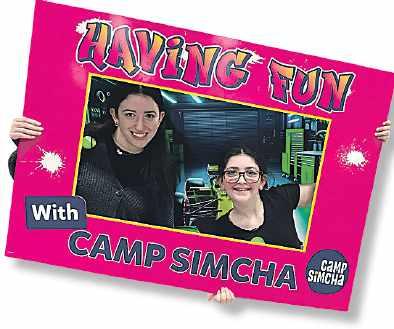
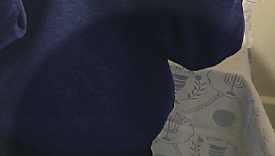
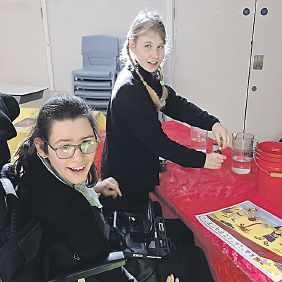



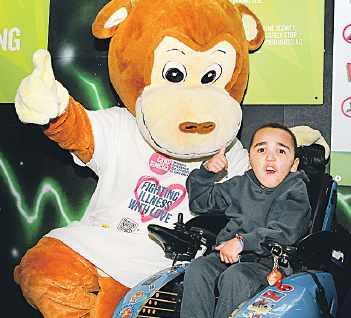


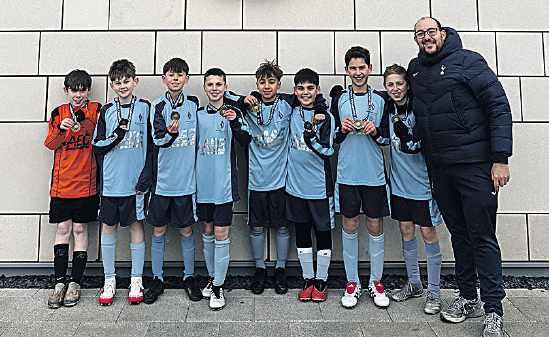
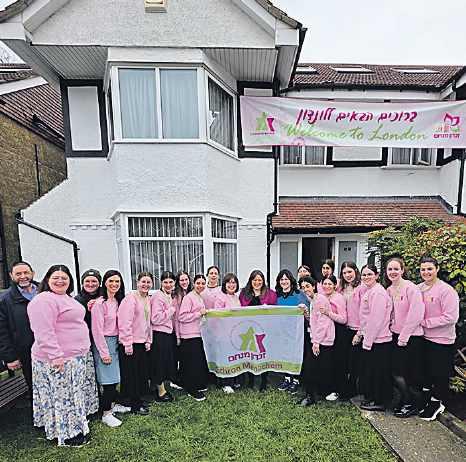

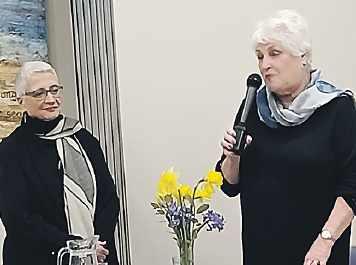
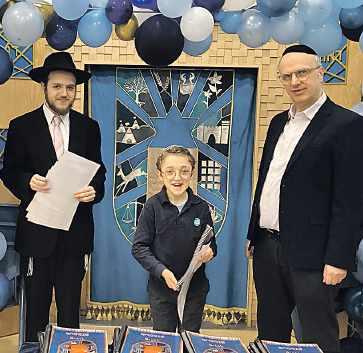
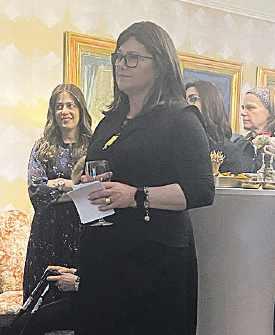



shared her acclaimed film The Komediant, about the heritage of Yiddish theatre in America. Schwartz, who has taught theatre in Israel, went on to speak about Kibbutz Re’im and the need to support its community after the 7 October 2023 attacks.
Ahead of his special day at Brentwood and Shenfield Reform Synagogue, William Solomons designed a new yad which he used to direct his way across his Torah text. His idea was especially fitting as his barmitzvah parsha dealt with the design and construction of the Tabernacle the Israelites built as a sanctuary in the desert. William said: “I like working with my 3D printer and I thought I’d give it a go. It wasn’t easy. My barmitzvah was getting closer, and my first three attempts at printing a yad all failed. Happily, though, with just a couple of days to spare, I managed to get it right.”
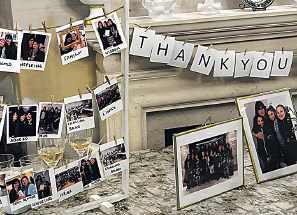

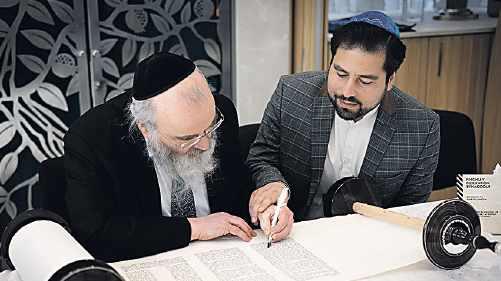

Following her decision to leave family education charity Seed after almost two decades, the organisation celebrated Joanne Dove’s contribution with an evening of tribute and thank you. In a video message Chief Rabbi Goldstein of South Africa described her as an ‘icon’ of Jewish outreach. Seed founder Rabbi Joey Grunfeld saluted her as a “personality with an exceptionally giving heart”. Rather than retiring, she is establishing her own organisation known as ‘JD Inspires’ and will continue to deliver her popular classes and lectures.
Parents, pupils and staff came together at the Wohl Campus in Golders Green for an inclusive Siddur Party. The school unveiled two new tailor-made siddurim. One focuses on sensory davening, while the other has pictorial representations of the songs. Transliterations allow nonJewish staff members to support the children in their daily prayers. Head of Kodesh Eitan Kohn said: “The party event was incredibly special, with a historic energy to it. The smiles on the pupils’ faces when they received their new siddurim said it all.”
A new Torah was donated to Finchley Federation in memory of Salomon and Rachela Ismach, founding members of Finchley Central Synagogue, as well as in honour of their daughter Gloria. Accompanied by traditional Jewish singing and dancing, it made its way from Pardes House to its new home in Finchley Federation, accompanied by a community singing and children waving flags from their parents’ shoulders.
The Focus Foundation hosted a musical fundraising evening for 180 guests at the Hilton Suite, where it launched an initiative to expand its housing options, enhancing stability, security and independence for its members. Serving 46 members at present, it’s the leading organisation in the NorthWest supporting Jewish adults with learning and physical disabilities as well as those on the autism spectrum. Trustee David Nadler said: “Our family owes everything to Focus.” Campaign manager Charlene Blake said: “The energy in the room was electric. We are blessed to have such a supportive and generous community behind us.”

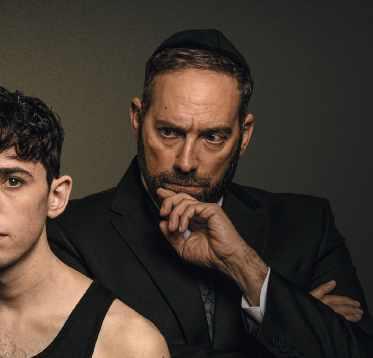


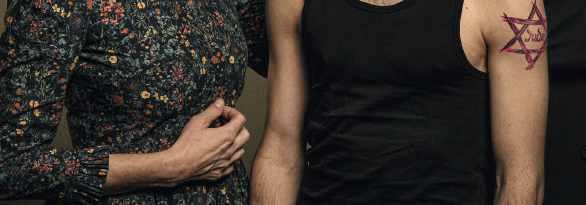
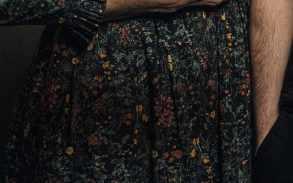





Holocaust memoir Corporate volunteering
influencer dresses up for the Jerusalem Marathon, writes Charlotte Henry

Last Wednesday Yoel Levy celebrated his 26th birthday not by eating cake and indulging as one might expect. Instead, he was preparing his body and mind to complete the International Jerusalem Winner Marathon just two days later.
Yoel, known to his 154,000 Instagram followers as The Jewish Fitness coach, took on the race dressed as Batman in memory of Ariel and Kfir Bibas and their mother Shiri, who were held hostage before being murdered by Hamas terrorists. Images of the young family donning various Batman t-shirts and costumes became some of the abiding images following the atrocities of 7 October. They have taken on even greater meaning since the Bibas deaths were confirmed, the memory of their coffins being transferred to the Israeli authorities impossible to shake off.
Levy decided to tackle the hilly Jerusalem marathon, which he tells me contains “more elevation than the London, Berlin and New York [marathons] together,” after completing the Dead Sea Half Marathon back in February. However, he wondered “how else can I make it a bit more special?” He decided on the Batman costume following the widespread horror at the murder of the Bibas family members.
There is another meaningful aspect to his marathon too.
Levy was raising money for Shalva, the Israel Association for the Care and Inclusion of Persons with Disabilities, which is based in Jerusalem. The organisation does work to provide a space for children with conditions such as Down syndrome and autism, as well as their families, allowing them to receive some care and respite.
Levy’s sister Hannah has Down syndrome and often appears in his social media content as well as finishing runs with him. His cousin in Israel also has the condition and goes to Shalva every afternoon. “I know a lot of people who volunteer, and it’s just such a lovely organisation,” says Levy, who is aiming to raise a total of £5000.
Levy has done some amazing challenges already, including walking from his home city of Manchester to London. He was also one of the youngest participants to complete the London marathon in 2017, just three weeks after his 18th birthday.
Despite that, doing this kind of run remains a bit out of the content creator’s comfort zone. “I love weight training,” he says, but he has had to “reduce weight training massively and run loads” whilst preparing for the marathon. “I would prefer for myself to go to gym and lift weights, but now you’ve got to make sure your body is strong enough, so core work, knee work… so my whole routine of training has changed massively.”
Having recovered from the bout of sunstroke he got after going on a run upon arriving in Israel, the training had carried on apace. “I did a 33-kilometre run in the Batman to train,” recalls the fitness instructor. Not only did this give him a mental boost, showing that it could be done, but also “it was around Purim, so the looks weren’t so odd… it was great because I was a bit nervous to run a in Batman outfit just around Tel Aviv.”
While that run was done without music, Levy’s soundtrack is usually “all the Chasidic Jewish music. Their wedding music. I will listen to, like chuppah music on my long run.”
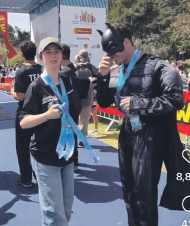

Levy said this shift has been “quite refreshing, because as a fitness coach, you are so used to routine, and actually it’s a good little challenge. It reminds you that you’re human… It humbles you a bit.”
And it’s not just the hills of Jerusalem that Levy needed to worry about. He knew it was likely to be hot in that Batman costume. “I would love a Mancunian cloudy weather day in Jerusalem” he said.
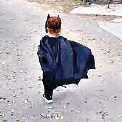
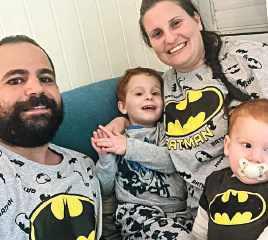

family as “they’ve got so many things on

I haven’t even thought about reaching out. They’re busy enough.”
The Jerusalem Winner Marathon is a special race. It is unique in that it goes through sites of three different religions, something Levy describes as “beautiful”.
collaborations with a football team that is close to them. “If [the Bibas
Levy had not yet spoken to the Bibas family as “they’ve got so many things on their plate already.” However, he is in touch and has conducted social media collaborations with a football team that is close to them. “If [the Bibas family] want to chat or get a photo, then it’ll be an honour for me. But

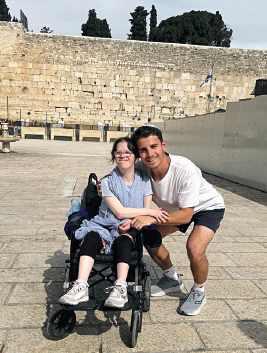
He was also particularly looking forwarded to making his way through the Old City. “Just going through the streets of Jerusalem, I think it will be a really powerful, passionate thing,” he says.
Given all that, it’s not surprising that Levy expected to feel emotional, but was staying practical, declaring that his focus was “making sure that I train, sleep well enough and fuel well enough before.”
The feelings would be processed when he crossed the finished line.
And it was after he crossed the finished line with a time of 4:26:39 that I caught up with him again.
Had the reactions to his costume been as he hoped – “ lots of high fives!” and recognition for the meaning behind it. Confirming there were ticks for both, he added. “Being able to run as Batman was great and may have inspired a few people along the way.”
Inevitably for a content creator, he also hoped that the pictures and videos of him running dressed as the Dark Knight would spread across social media and educate.
And what about those hills? “I was scared when I saw the route,” he admitted. There are some things that even Batman finds a struggle!”
Children of Radium is not the book Joe Dunthorne expected to write. The Welsh author has had a varied literary career that began with Submarine, a coming-of-age novel that was adapted into a beloved feature film by Richard Ayoade. Since then, he has written a novel set in a rural commune, another about marriage and friendship set against the backdrop of the 2011 London riots, as well as a collection of poetry. Now he has turned to non-fiction and produced a Holocaust memoir like no other.
After completing his second novel, Wild Abandon, Dunthorne was pondering what to do next. It was the early 2010s and the author had always felt his grandmother’s life warranted a book. He began to conduct interviews but, he explains, “they came with a lot of preconceived ideas about what her life was like and the story I wanted to tell – a Hollywoodised adventure story about my heroic ancestors escaping the Nazis”. He could feel the disapproval of his grandparent and decided to put the project on hold since life, unfortunately, tends not to be directed by Steven Spielberg.
A decade later, the writer tried again and, five years on, the result is Children of Radium. Dunthorne believed he would be telling the stranger-than-fiction story of his great-grandfather, Siegfried Merzbacher, an eccentric scientist who invented radioactive toothpaste in the 1920s. His understanding was that this Jewish refugee returned to Berlin during the Olympics of 1936 and pulled o a heist on his own home. The truth, inevitably, was far knottier and di cult to ascertain even having translated Siegfried’s rambling, elliptical 2,000-page memoir.
As the book progresses, its author is forced to face some uncomfortable truths about his great-grandfather’s work involving chemical weapons. Ethically speaking, can we separate the inventor from the invention? How responsible is a Jewish scientist if his research aids the Nazis to commit the most heinous crimes


of the 20th century? And can we, from our privileged 21st century vantage point, make any kind of moral judgements? Children of Radium poses the most profound questions about family and legacy without ever feeling didactic. The author admits he would almost certainly have never begun writing the book if he realised the full extent of what he would discover.
Growing up, Dunthorne knew his grandmother was Jewish but lapsed to the extent that she was not practising, in a religious or cultural sense. He explains: “What’s been interesting for me is that even though I don’t consider myself Jewish, writing the book has turned it from something I know about my family history to a
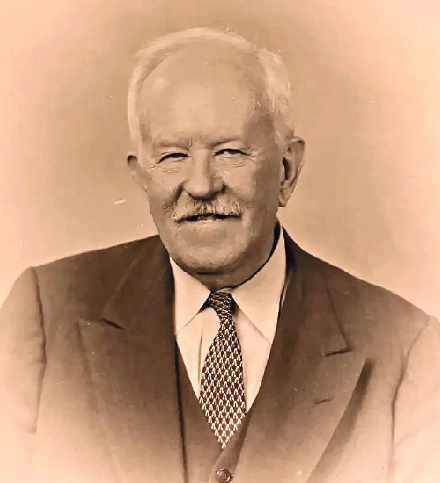
real, tangible, emotional connection. I feel much more connected to that side of my family now.”
Like Jesse Eisenberg’s A Real Pain, the subject matter is serious but the tone veers towards irreverence. It is a gamble that, in both instances, pays o , but it was not something Dunthorne did without due consideration. He wondered: “How am I allowed to tell this story in this way? Where is the room for the voice I usually write in?” He did not wish to diminish that period of history but wanted to stay present and true to himself within the text.
Dunthorne, understandably, felt an enormous sense of responsibility working on this particular book that was incomparable to his mindset when writing fiction. His anxiety was not helped by the fact that his parents are historians and they questioned whether this was the right project for their son. Ultimately, though, the author’s relationship with his mother and the latter’s area of expertise is at the heart of Children of Radium as the pair

team up and become “a kind of odd couple detective team”. It was far from fun and games, however, and the experience of writing the book was “very painful and traumatic at times”. This was an unusual experience for a man who takes pride in his ability to compartmentalise, an inherited family trait. They are, he says, “unemotional people who don’t
speak about feelings but make jokes instead”. As the research developed, it became abundantly clear that some of the findings were no laughing matter.

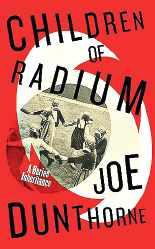
as Dunthorne’s

In May, the BBC will air Half-Life, an eight-part podcast version of the story presented by the author and including interviews with Dunthorne’s family members. It has been a remarkable journey given he originally assumed he would just be telling the story as set out in his greatgrandfather’s memoir. Instead, he ended up travelling the world and uncovering darker truths. He now views that memoir as an “ego document”, a term he learned from historians that warns against viewing such sources as reliable. His research expanded in every sense and the result is a nuanced examination of family secrets and the tales we tell. Siegfried’s sister, Elisabeth, emerges as a fascinating contrast in the book’s latter stages as Dunthorne’s mother wonders whether her son has chosen to write about the wrong sibling.
chosen to write about
Children of Radium is anything but an “ego document”. Dunthorne remains empathetic throughout and manages to reserve judgment even in the face of horrifying evidence. There is no rush to condemn and the butt of the joke tends to be the author, displaying the kind of self-deprecating streak that has been a mainstay of Jewish comedy stretching back centuries. The past may be unreliable but, out of it, Dunthorne has fashioned something unique. It might have been a decade and a half since he first tried to tell this story, and approaching a century since these events occurred, but the writer has produced something that is undeniably worth the wait.
Children of Radium is published by Hamish Hamilton, £15 (hardcover)

























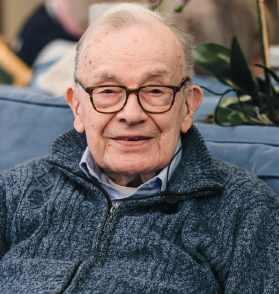
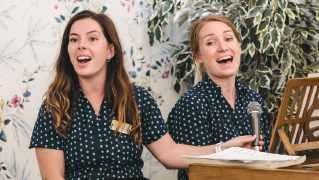








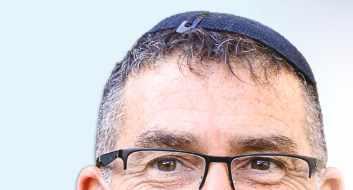
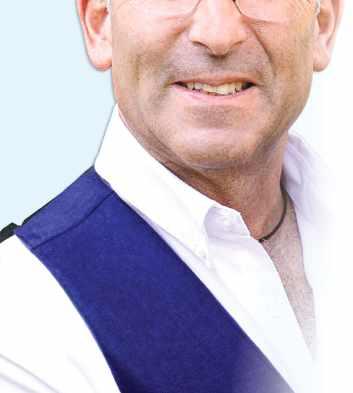













































By Candice Krieger candicekrieger@googlemail.com


With corporate volunteering increasingly becoming part of the workplace we find out how it’s enriching communities and boosting sta morale
Corporate volunteering is no longer just a nice-tohave – it has become a game-changer for businesses and their employees. What started as a simple act of goodwill has evolved into a mutually beneficial relationship that enriches communities while boosting employee satisfaction, productivity and morale.
Today, volunteering is increasingly embedded in corporate culture. Employees find fulfilment through initiatives ranging from mentoring young people to environmental projects and supporting local food banks. This growing shift reflects a broader alignment between corporate values and consumer expectations for corporate social responsibility (CSR) coupled with the growing demands of purpose-driven workforces.
generation, companies are more likely to include this as part of their corporate identity – it shows that they’re a caring organisation.”
However, Rachelle says a gap still remains between intention and execution. According to reports, only 15 percent of employees actually use their volunteering days, which shows “there’s still a long way to go for companies and charities to make this work for both parties”. To address this, she suggests more online volunteering opportunities like tutoring or befriending. “And allowing employees to volunteer on a Sunday and take a day in lieu would really help some charities.”
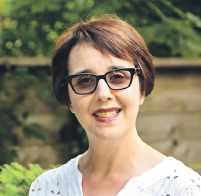
Rachelle Lazarus, charity engagement and volunteer manager at the Jewish Volunteering Network (JVN), notes that while corporate volunteering has long been part of many companies’ CSR strategies, it has undergone significant changes in recent years.
“There has been a shift from one-o activities to more sustained partnerships between organisations,” Rachelle says. “When I first became involved, a large bank would come every year with a coach full of people. They paid for everything and it was a great day. However, as budgets tightened, volunteering activities shifted, with employees engaging in ongoing smaller, skilled-based initiatives.”
Rachelle cites Gen Zs as a driving force behind this revolution. “They expect companies to embrace corporate responsibility as a key part of corporate culture, not just as a tick-box exercise. To appeal to the Gen Z
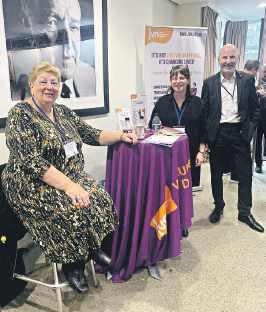
she explains, “that if you want money for something, you can ask, and there’s a proper structure in place. “It’s not just lip service –it’s about making a real di erence.”
Elissa highlights the 2023 merger between Jewish charities Kisharon and Langdon, which was spearheaded by a dedicated team of senior leaders and professionals who volunteered their high-level expertise, as an example of skilled volunteering in driving “significant and impactful organisational change”.
together, it’s a great way for the team to come together - particularly with so many working more remotely,” says Sharon Bradman, Norwood’s volunteer manager.
Activities often focus on outdoor projects like gardening, fencing and painting. “The corporates spend a day volunteering, allowing those involved to see the immediate impact of their e orts. They really enjoy it and keep coming back.”
The shift towards meaningful, long-term initiatives

is echoed by Elissa Bayer, business originator and strategic consultant at Investec Wealth & Investment (now part of Rathbones). Elissa also co-chairs the JVN’s awards committee. She says: “Volunteering has shifted from attending one-o ad hoc events to sustained e orts that provide lasting impact for communities and businesses alike. That’s where the corporate sector is heading.”
Elissa explains that Rathbones, which has a department dedicated to CSR, o ers all its 3,500-plus employees days o for volunteering. “Employees can apply for funding for specific causes, with trustees deciding which projects to support. There’s a trust here,”
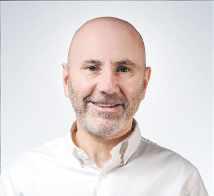
She stresses that while many City firms have strong structures in place, others need to catch up. “Firms must realise that these e orts are vital. They need to make volunteering a deeply rooted part of their culture. The corporate sector gets a lot thrown at it, but if they’re doing something good, people should know about it.”
According to a report by not-for-profit social enterprise Works4U, the percentage of employers organising employee volunteering has increased five-fold since before the pandemic. Corporate volunteering has become a powerful tool in the post-pandemic era to foster deeper connections in today’s hybrid work era.
Jewish charity Norwood has seen this shift first-hand, particularly through its corporate volunteering days at Ravenswood Village, a residential community for adults with learning disabilities.
Johnson & Johnson has become one of Norwood’s most dedicated partners. Last summer, the multinational pharmaceutical and biomedical company sent a di erent team every month to volunteer at Ravenswood Village. “For Johnson & Johnson, it’s about building that team experience, especially for those who aren’t always in the o ce
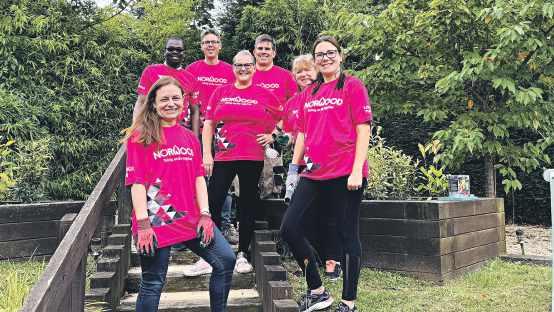
Other corporate partners, including National Grid, Ernst & Young and Wickes, have embraced Norwood’s initiatives as part of their CSR strategies, the benefits of which extend beyond just the work completed. “It’s always lovely when corporate volunteers go on to become individual supporters, strengthening the ties between businesses and charities,” Sharon adds.
Clive Nathan, CEO of underwriting at Brown & Brown, a $30bn market capital global insurance company, took over as chair at JVN this month. He replaces Daniel Levy, co-chairman of The Grove Hotel and Luxury Family Hotels.
Clive says: “It is an honour to continue the fantastic work that Daniel has done for over a decade. We have an excellent group of trustees and a wonderful executive team. Our aims and strategy will not change and that includes our commitment to engaging with corporate partners who truly value the benefits of volunteering. I know from personal experience the huge boost it can give to everyone involved. It can be a real game-changer in developing a team. “
At Brown & Brown, where there are 17,000 team members across the US and Europe, employees can either take part in their personal projects or be a part of volunteering days led by local team leaders.


Through JVN, Clive’s team regularly volunteers at Sebby’s Corner, a charity providing essential items to families in need. Clive says: “We go there as a team every few months and help pack, probably around 100 bags a day. It’s a great way for us to come together and do something to help. My team say it’s one of their best days of the calendar.”
Clive believes that volunteering works best when it aligns with a company’s values and is led by local teams.
“I think that’s the key. People are so inspired and also realise how lucky they are. It’s a great thing to do – if you do the right thing, you usually get the right results,” he says, adding: “I think it’s pretty well known that people feel good when they do something good. That is what happens after a volunteering session.
Last month, BCLP received a Mitzvah Day award for its contribution packing for Comfort Cases UK in 2024. More than 50 volunteers from the firm’s London o ce gave up their lunchtime to help make up 48 comfort cases for teen boys in the care system, filled with items donated by the firm and individual colleagues.
Jonathan Morris, BCLP partner, says:
“We are really thrilled to have been given the Mitzvah Day Award. Comfort Cases UK is a fantastic charity and it was wonderful to have so many of my BCLP colleagues participating in the packathon.”
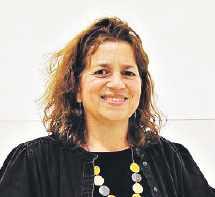
“When our teammates are engaged and proud they do more and produce more for our customers. Volunteering is a risk-free way of engaging our people.”
Senior leadership plays a vital role in encouraging participation, says Alison Klarfeld, head of corporate responsibility at Bryan Cave Leighton Paisner (BCLP). “The more that senior leaders get involved, the more junior colleagues feel encouraged to,” she says, noting that “making a positive contribution to our communities and society is one of BCLP’s core values”.
BCLP’s other initiatives include Donate our Time days combining teambuilding with volunteering in the community and a longstanding reading programme with Stratford Manor Primary School in Newham, which has been running since 2007.
Through this programme, volunteers dedicate 30 minutes each week to helping young students improve their reading skills and develop a love for books.
More recently, this scheme has evolved into a virtual platform in collaboration with Chapter One, allowing volunteers to continue making an impact remotely. In addition, all BCLP sta are given an annual Volunteering Day that they are encouraged to use to support a charity or cause that is
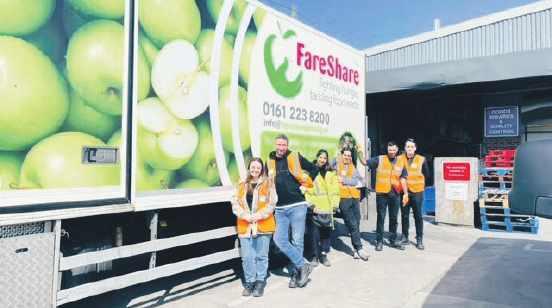
important to them. Colleagues book their volunteering day using the same system that is used to book annual leave.
“We try to provide a variety of opportunities – one-o s and ongoing, to appeal to as many colleagues as possible,” Alison says. Joint volunteering days with clients have become particularly e ective for building client relationships and demonstrating the firm’s commitment to making a di erence.
“Younger people in particular care about the values of their employer and want to know that they work for an organisation with similar values to themselves,” says Alison.

Businesses may risk missing out on attracting and retaining good employees if they don’t o er volunteering opportunities.
“For many clients, it’s a high priority and they ask for details and examples of our volunteering and wider [corporate responsibility] initiatives, and opportunities for collaboration, on a regular basis in pitches and tenders.
By embedding volunteering into their culture, companies can create lasting value for their employees and communities, proving that doing good is good business. • jvn.org.uk

IF YOU’RE INVESTED IN YOUR COMMUNITY, YOUR FUTURE AND CONNECTION WITH ISRAEL, SO ARE WE.

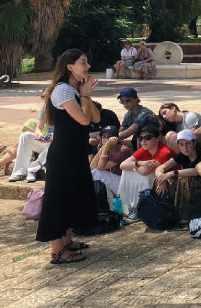

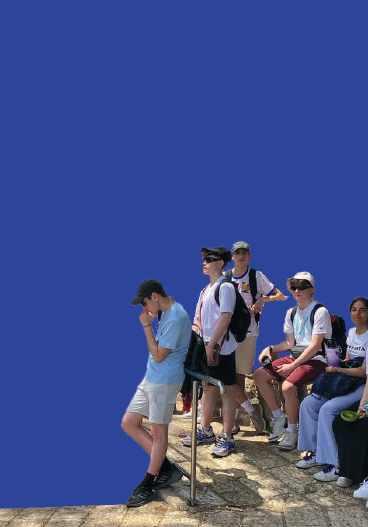
The UJIA Gap Year Scholars Programme will make a meritbased contribution to the young leaders of tomorrow, covering up to half of the costs.
To find out more visit ujia.org/gap-year-scholars
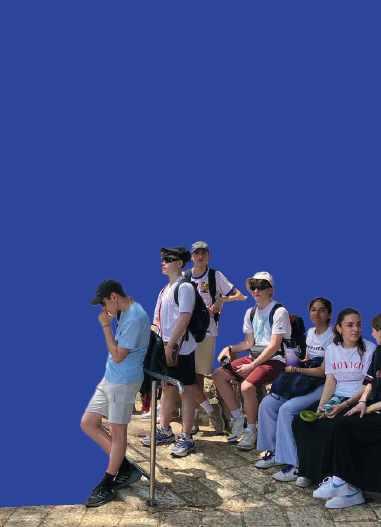
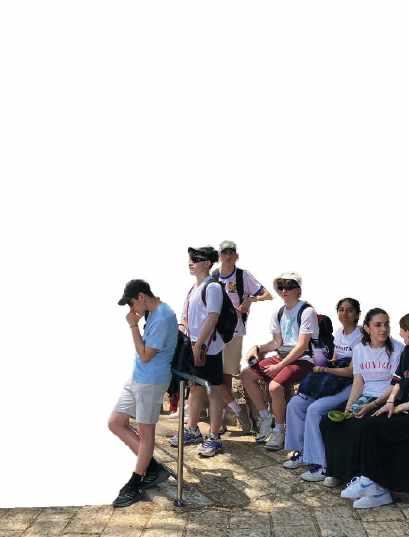
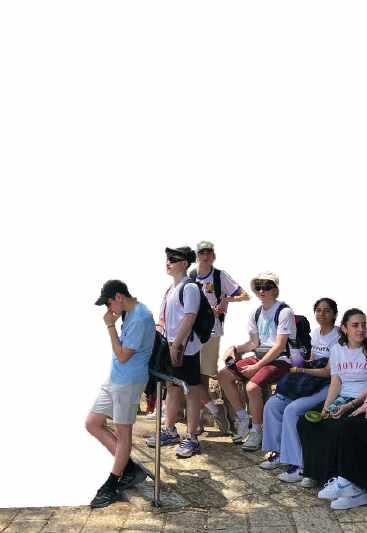






In
our thought-provoking
series, rabbis, rebbetzins and educators relate the week’s parsha to the way we live today
BY REBBETZEN SHULI LISS HIGHGATE SYNAGOGUE
the seder with purpose
Are you a fan of Rituals or The White Company? Despite the fact that I have (sort of) lost my sense of smell since Covid, I still enjoy the fragrances when I walk into these shops in Brent Cross.
‘Walking’ into any of our Jewish festivals is a bit like walking into a perfume shop. It feels good while you are there, but the lovely smell tends to dissipate soon after leaving. What are your favorite memories of seder night?
Hiding the afikoman? The matzah crumbs everywhere? Pesach is filled with interactive, bonding, and meaningful experiences, but how long does that inspiration and connection last?
The answer is: it is up to us. If we sample some of the perfume products, the scent lingers for a
few hours but if we actually buy the di user, the pleasant fragrance will permeate our homes for a long time. So how do we ‘buy’ Pesach?
We infuse the rituals of seder night with meaning and purpose. When dipping the radish into the salt water for karpas, we deeply feel the tears of our people. When we sing Dayenu, we look back over the past year and reflect on what we need to be grateful for. When we take the sandwich of matzah and maror, dipped in charoset, we recognize that our shared history is full of ups and downs – but we trust that it is all part of Hashem’s plan. And we pray and sing that next year we will be in Jerusalem.
This way, Pesach is not just a nice holiday that we remember fondly but a meaningful experience that shapes our identity and future. When we retell the story of our people, we can look for – and find – our place in the Jewish journey.
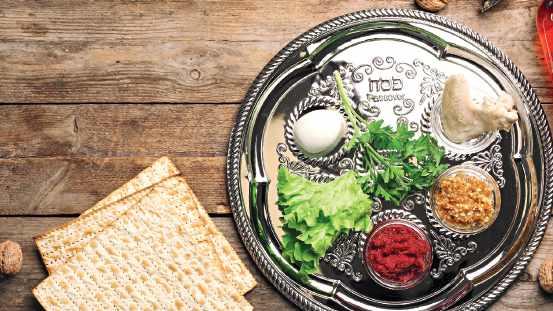
A few days after the Jewish people left Egypt, the Egyptians chased after them with weapons. Surrounding them were wild animals, and ahead lay the Red Sea. What were they to do? Hashem told them to walk into the sea, but they were afraid. One man, Nachshon ben Aminadav, took the plunge and walked in until the water reached his neck. This single act of faith precipitated the splitting of the sea.
What act can we do that will help to bring about our redemption?
As we sit at our seder tables, remembering the trials and the faith of our ancestors, we remind ourselves that this is not just a history lesson; our actions today will determine the future of our people.

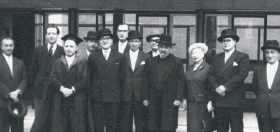



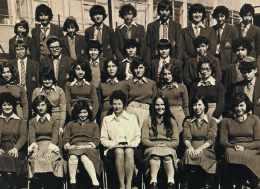

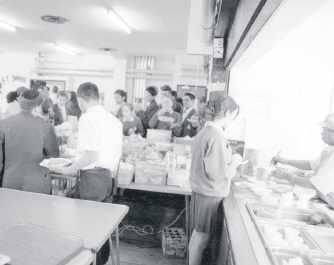
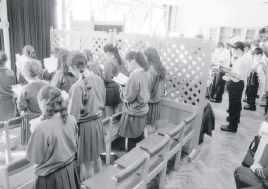


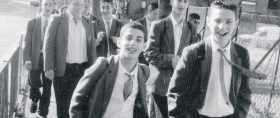


Whether it’s been a while since you last heard from your JFS friends or if you’re still in touch with those you went to school with, we want to reconnect with you.




JFS is relaunching its Alumni Network and we would love to keep you informed about reunions, events, and other activities.
To join thousands of JFS alumni from across the decades, just scan the QR code or visit j fs.brent.sch.uk/j fs-alumni
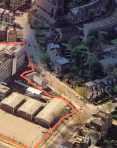





BY RABBI LEA MÜHLSTEIN
THE ARK SYNAGOGUE IN NORTHWOOD
“Do you want to be a delegate to the World Zionist Congress?”
When I was asked this question in 2005, I had heard of Theodor Herzl’s famous Congress but wasn’t aware that it was something that had continued after the founding of the state of Israel.
I reflected on the fact that the work of the first visionaries of modern Zionism was still incomplete – and was reminded of Rabbi Tarfon’s teaching in Pirkei Avot: “It is not your duty to finish the work, but neither are you at liberty to neglect it.”
And so, I took a leap of faith and agreed to attend the 35th World
Zionist Congress in June 2006.
Meeting up with delegates from Reform, Liberal and Progressive congregations around the world, and debating our position on the numerous proposed resolutions, immediately got me hooked.
I was inspired by the sense that this was a direct way of how I could help to fight for the border acceptance of Progressive Jews worldwide, advocate for our values and secure essential funding for both our movement in Israel and the World Union for Progressive Judaism.
Unlike what I was used to in Germany and the UK – where being a Progressive Jew always meant that at best you were welcomed at the edge of the table – at the World Zionist Congress our delegation was always in the rooms where it happened. Rather than being treated as a fringe movement, our repre-
sentatives were well respected and prominent in the decisionmaking processes.
In the years since my first Congress, I have personally seen many achievements secured to make us proud, including the establishment of an egalitarian prayer section at the Western Wall, other advances for religious pluralism, and funding to support the work of the Israeli Reform movement and its Religious Action Centre (IRAC), which has secured historic wins for LGBTQI+ rights in Israel, challenged gender discrimination and fought racism.
A stimulating series where our progressive rabbis consider Judaism in the face of 21st-century issues
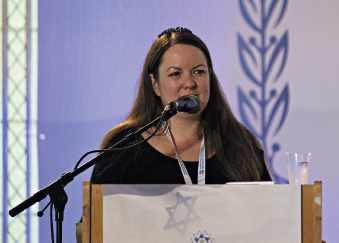
Our representatives on the board of Keren Kayemeth Leyisrael (the Jewish National Fund) have blocked Jewish developments on Bedouin land, stopped land purchases across the Green Line, and continue to monitor to ensure that the funds of the Zionist movement are not
used to further the settlement enterprise in the West Bank.
Thanks to the funding from the World Zionist Organisation our movement can be at the centre of advocating the return of the hostages and is making a tremendous contribution to rebuilding the communities in the Gaza envelope.
Many Jews in the UK –like me 20 years ago – won’t know that they have a vote to determine the British delegation to the 39th World Zionist Congress. Any Jew over the age of 18, who is resident in the UK, will be able to register to vote between 8 April and 11 May to participate in the electronic vote, which is then held between 8 and 12 June. Please listen to Rabbi Tarfon and make sure to register to vote at zionist-federation.uk/registration


Feeling disheartened by job hunting? You don’t have to go through it alone. Resource is here to support you every step of the way.
Landing your perfect job — well, that’s our job. 1-to-1 advisor support, CV development, interview preparation & more. Visit resource-centre.org or call 020 8346 4000
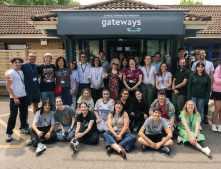
Gateways is the community’s only alternative education provider, dedicated to supporting young people who struggle to remain in mainstream education due to Social, Emotional and Mental Health needs.
Gateways is seeking to fill a new role within our executive leadership team.
Chief Operating Officer










This is a brand-new, strategic leadership role created at a time of rapid expansion for Gateways. As a key member of the executive leadership team, the Chief Operating Officer (COO) will drive operational excellence, ensuring the seamless delivery of our programmes and services in alignment with our mission and strategic vision.
Working Hours: Monday to Thursday: 9:00am – 5:30pm Friday: 9:00am – 1:30 pm

Salary: £55,000-£60,000 depending on experience For full job pack or to apply, please visit: gateways.org.uk/vacancies
Closing Date: Friday 18th April
Receive
Half Sovereigns - £265.67 Full Sovereigns - £531.35
Krugerrands - £2255.07
We also purchase sterling silver candlesticks and any other other sterling tableware www.howcashforgold.co.uk
can supply any certificated GIA, IGI, HRD natural or diamonds of your choice.



From individuals items and specialist collections to complete house clearances, removals, and probate valuations. We do as much as you need - just ask !!!
• As an independent broker acting on your behalf, I aim to get the highest prices for your pieces
• No need to worry about posting your valuables
• I sell through many different auction houses, high-end dealers, collectors and private clients
• With






A free valuation from our in house gemmologist and gold experts on anything you may wish to sell. If you are thinking of selling, we purchase all diamonds in any shape, size, clarity or colour. WE PAY MORE than all our competitors. Try us, and you will not be disappointed!




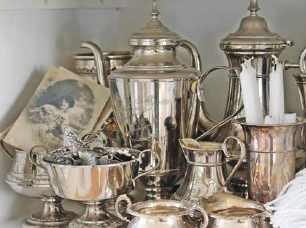








Top prices paid
Antique – Reproduction – Retro Furniture (any condition)
Epstein, Archie Shine, Hille, G Plan, etc.
Dining Suites, Lounges Suites, Bookcases, Desks, Cabinets, Mirrors, Lights, etc.
House clearances
Single items to complete homes
MARYLEBONE ANTIQUES - 8 CHURCH STREET NW8 8ED 07866 614 744 (ANYTIME) 0207 723 7415 (SHOP)
ARTICLES WANTED

SHUSTER - e-mail - info@maryleboneantiques.co.uk MAKE SURE YOU CONTACT US BEFORE SELLING

Furs, Jewellery, Old Costume Jewellery, Watches, Silver, Designer Bags, anything vintage. 01277 352560
Friendly Family Company established for 30 years

& WELFARE
We clear houses, flats, sheds, garages etc. No job too big or too small! Rubbish cleared as part of a full clearance. We have a waste licence. We buy items including furniture bric a brac.
For a free quote please phone Dave on 07913405315 any time.


Confidential Bereavement Counselling for adults and children individually. Support Groups available. We offer in person, online and telephone counselling. Contact Jewish Bereavement Counselling Service in confidence. 0208 951 3881 enquiries@jbcs.org.uk | www.jbcs.org.uk









